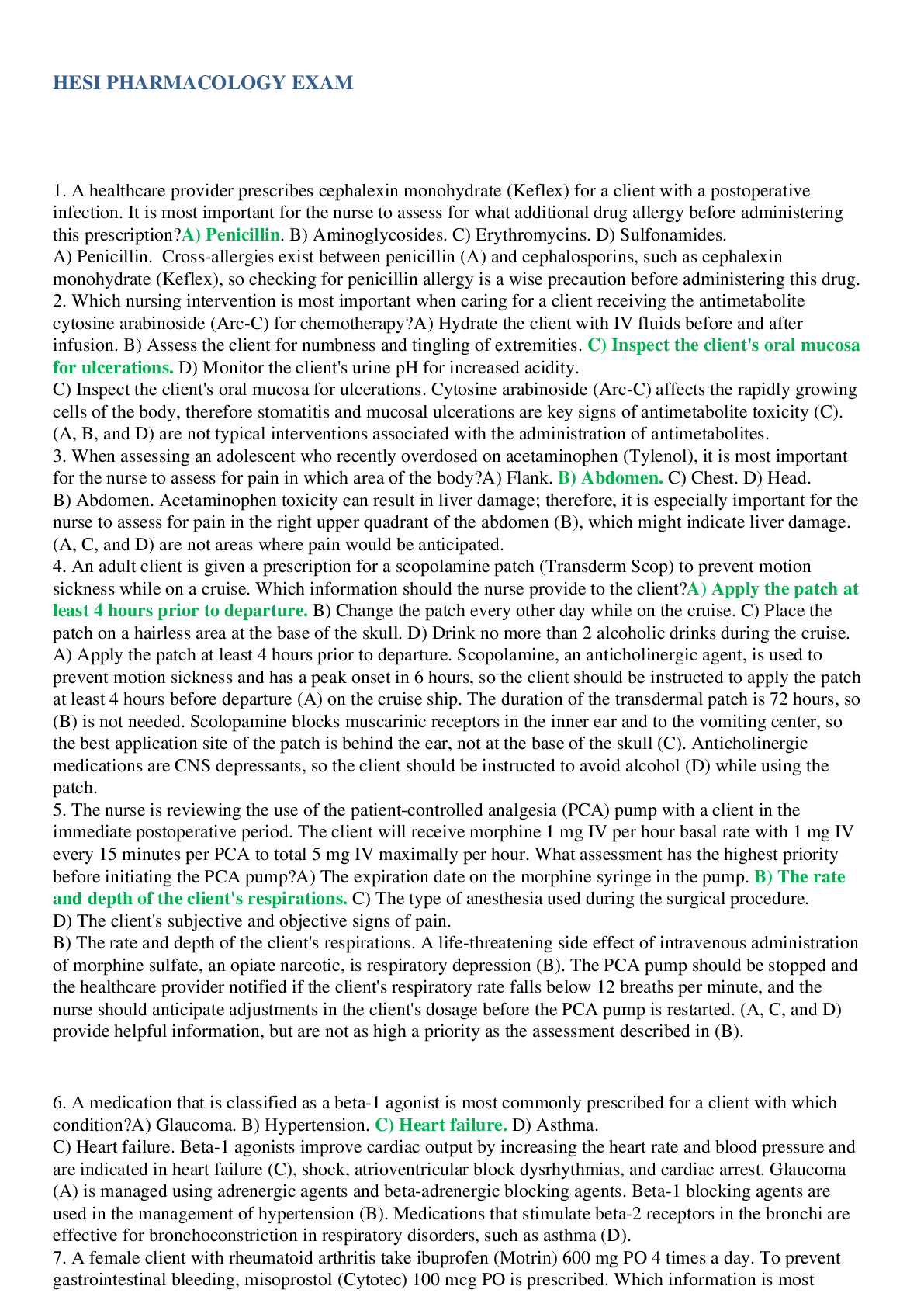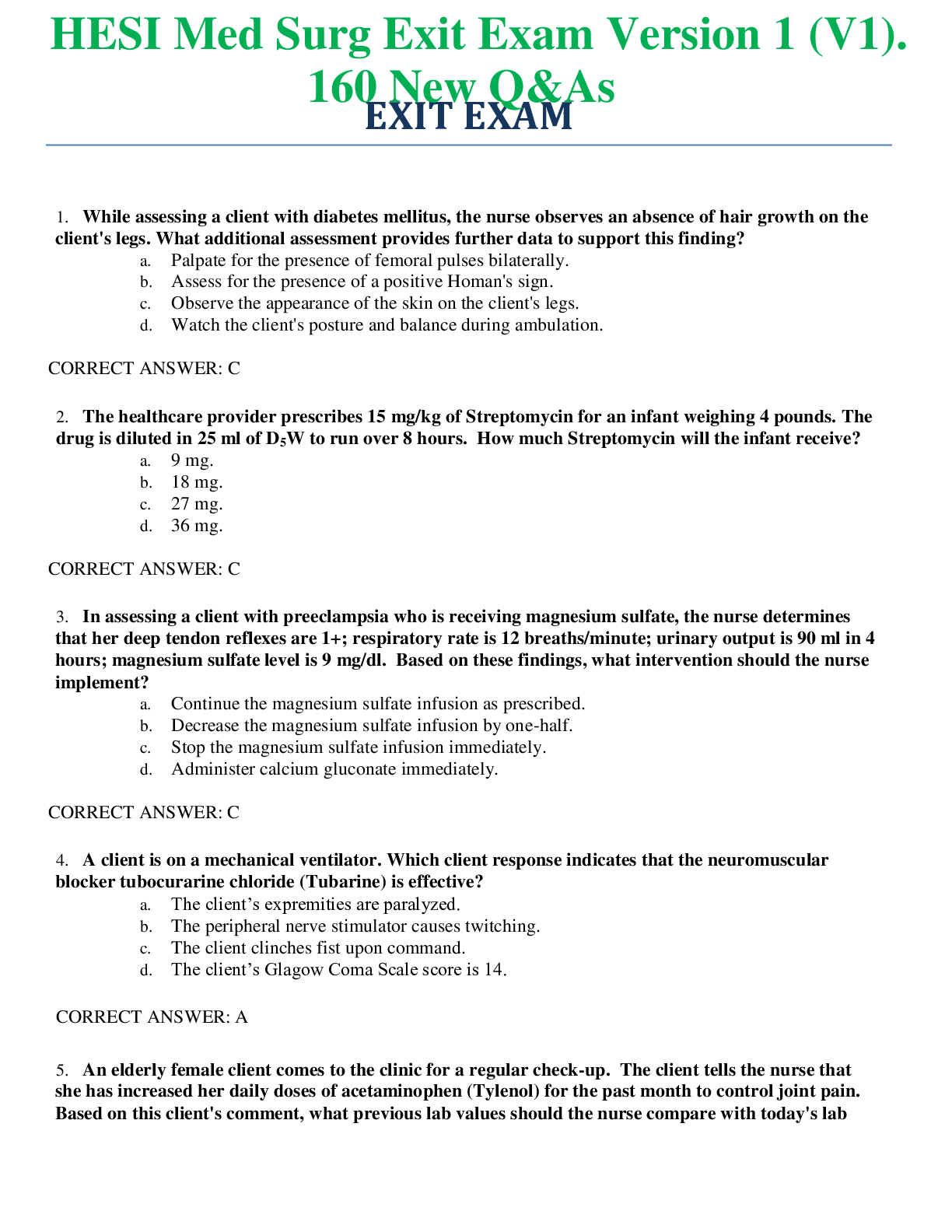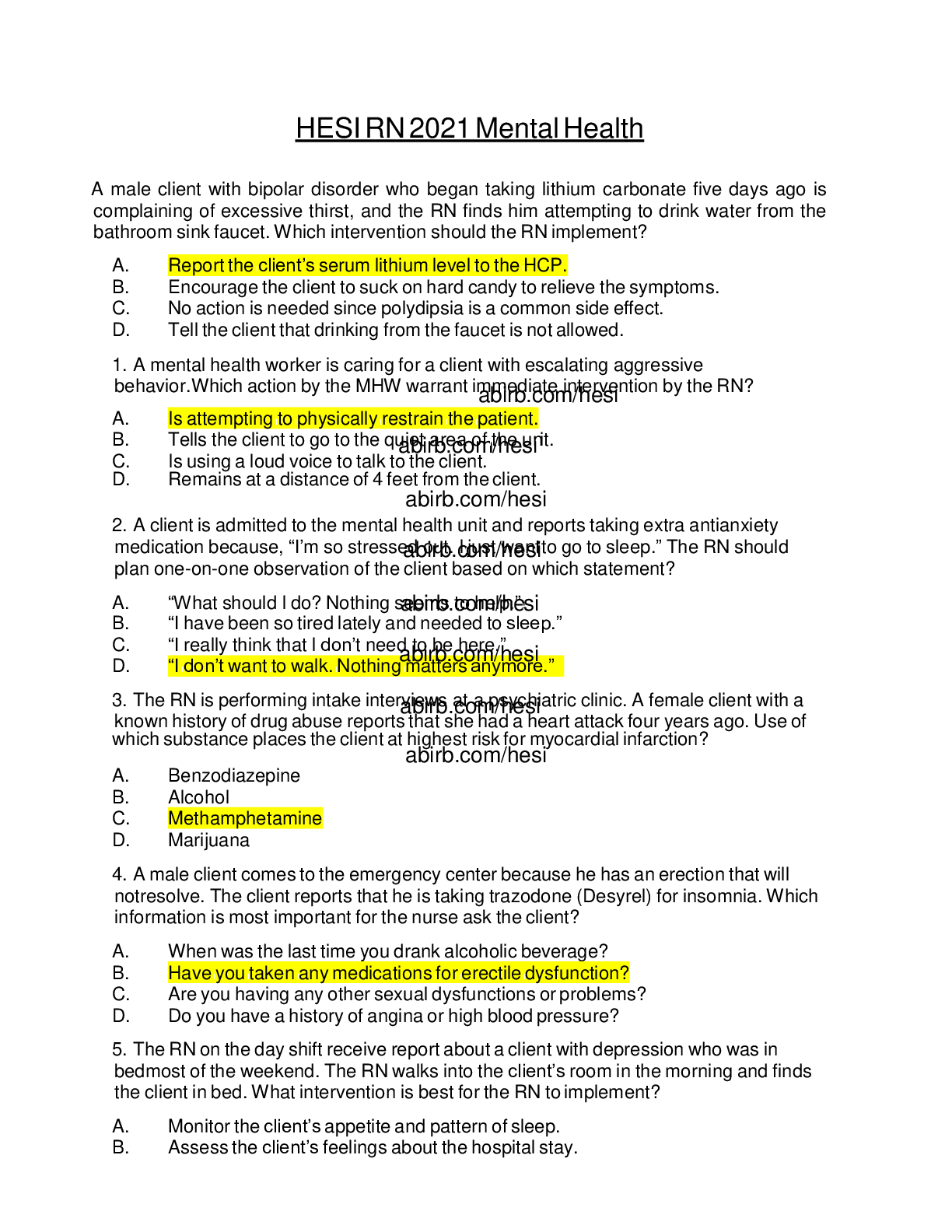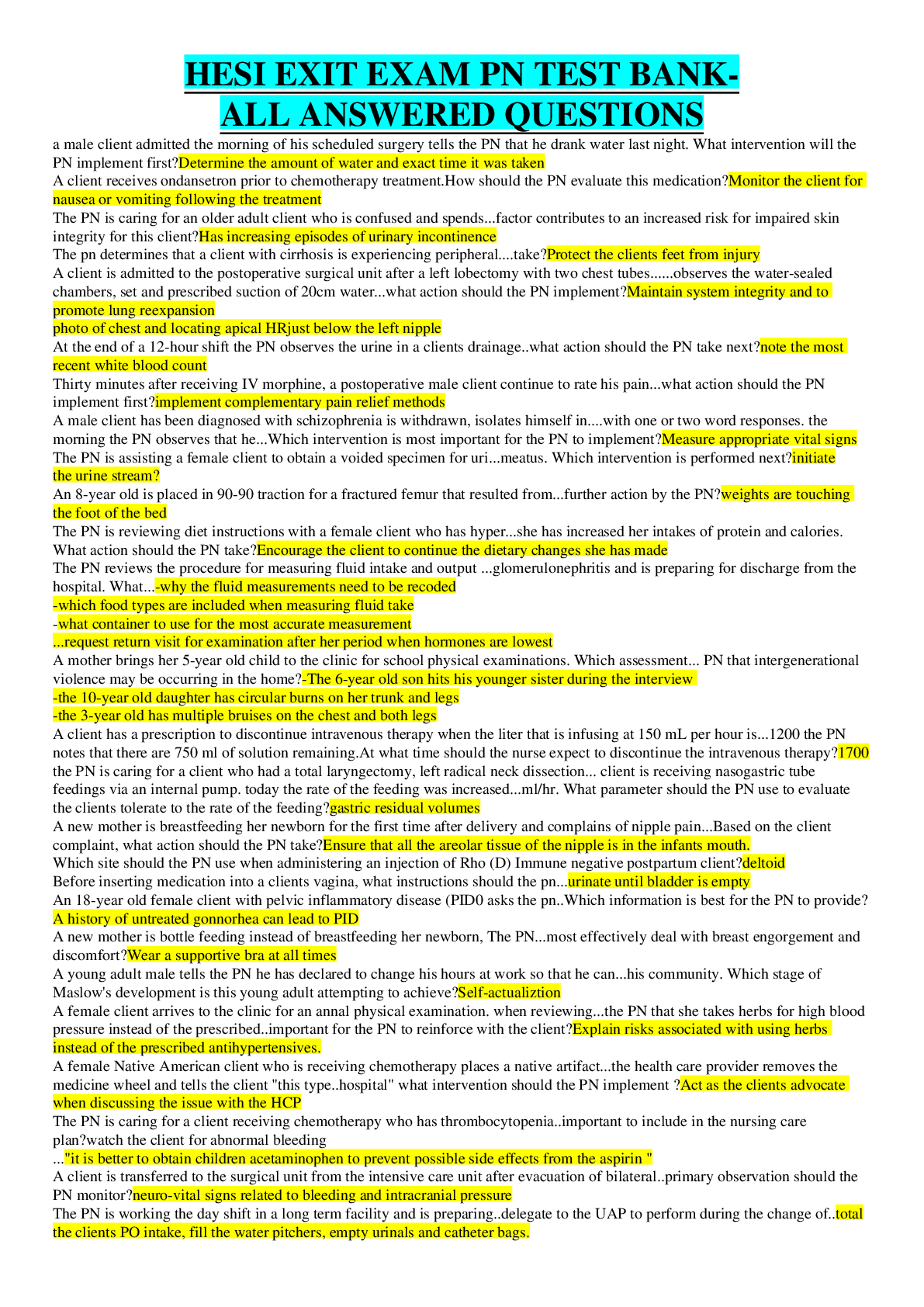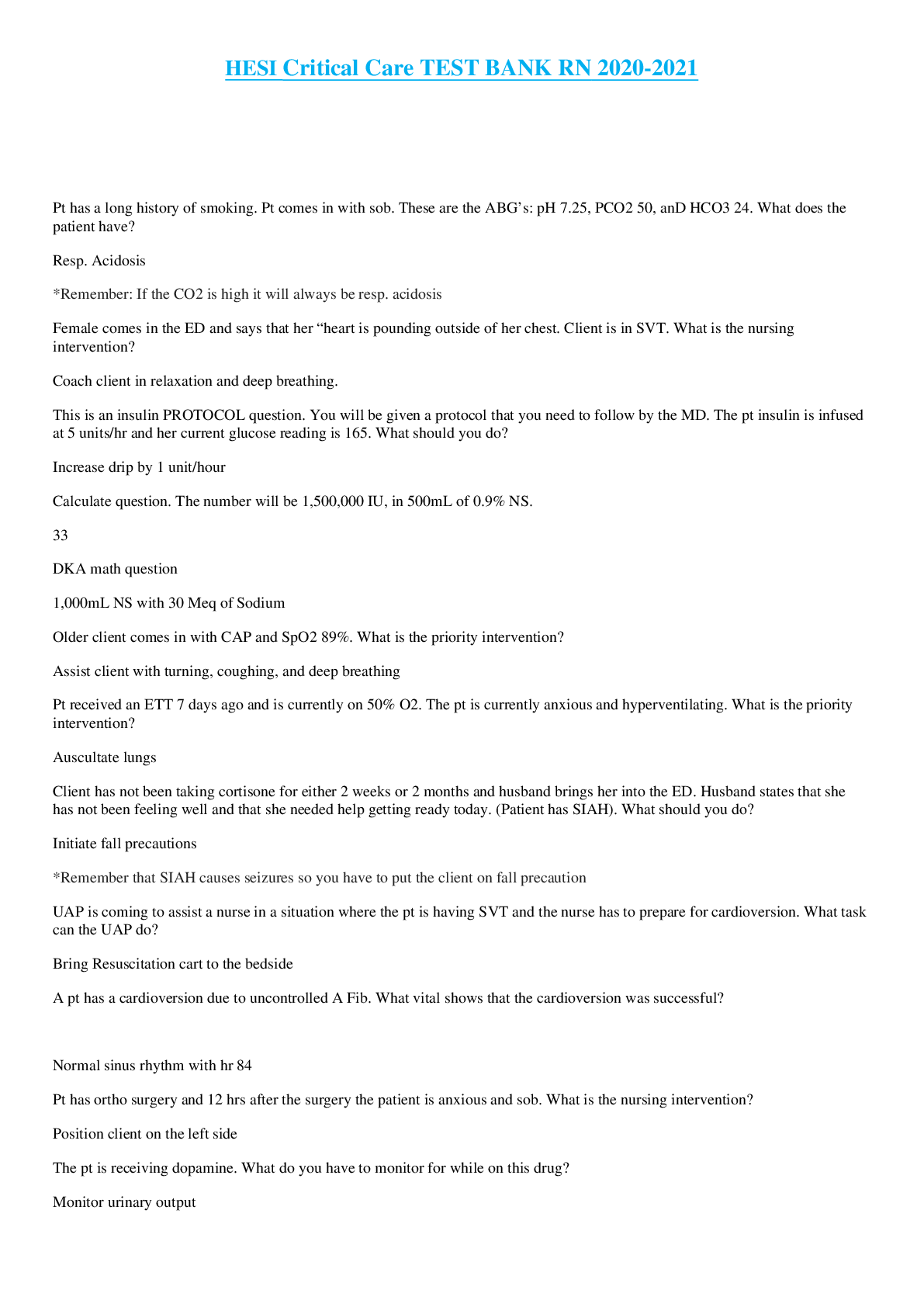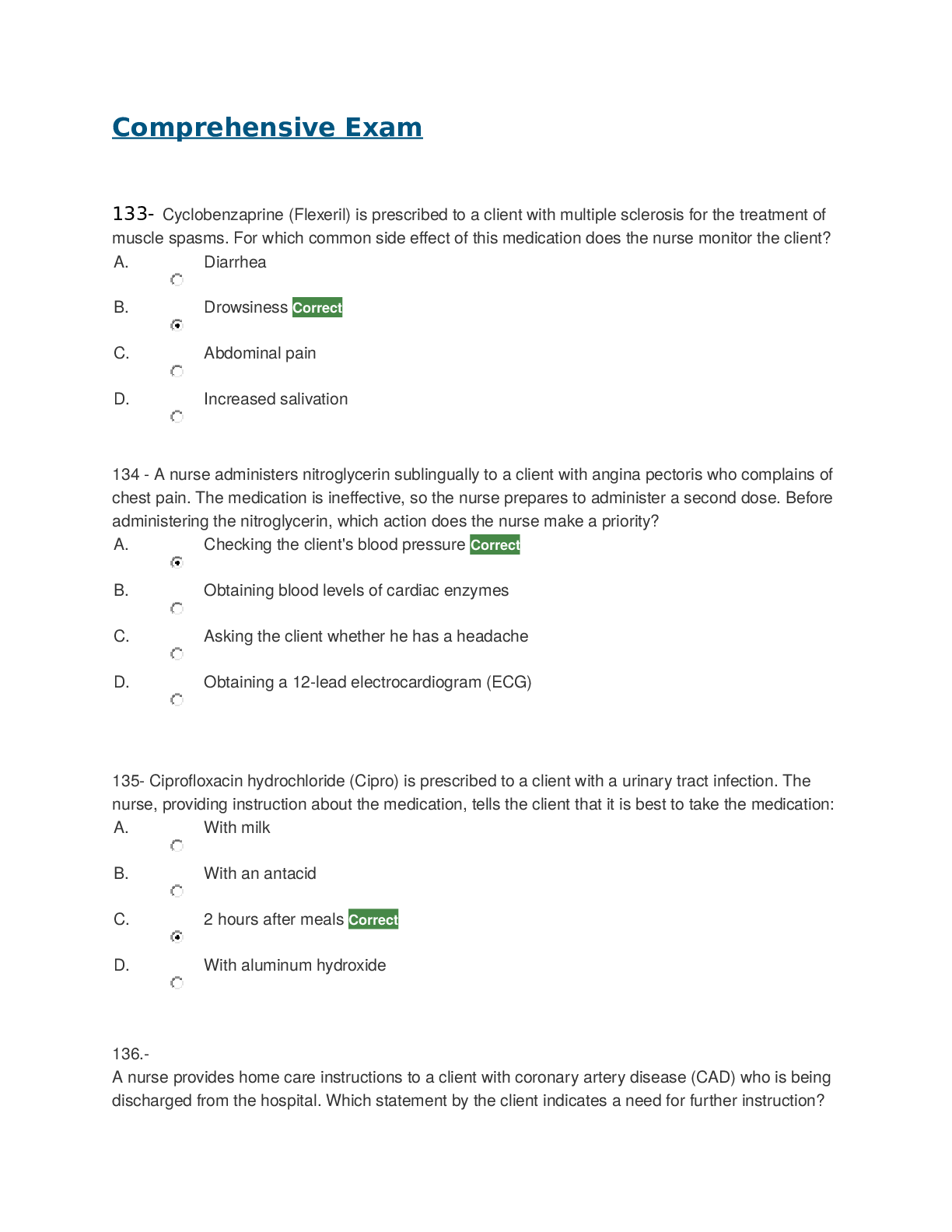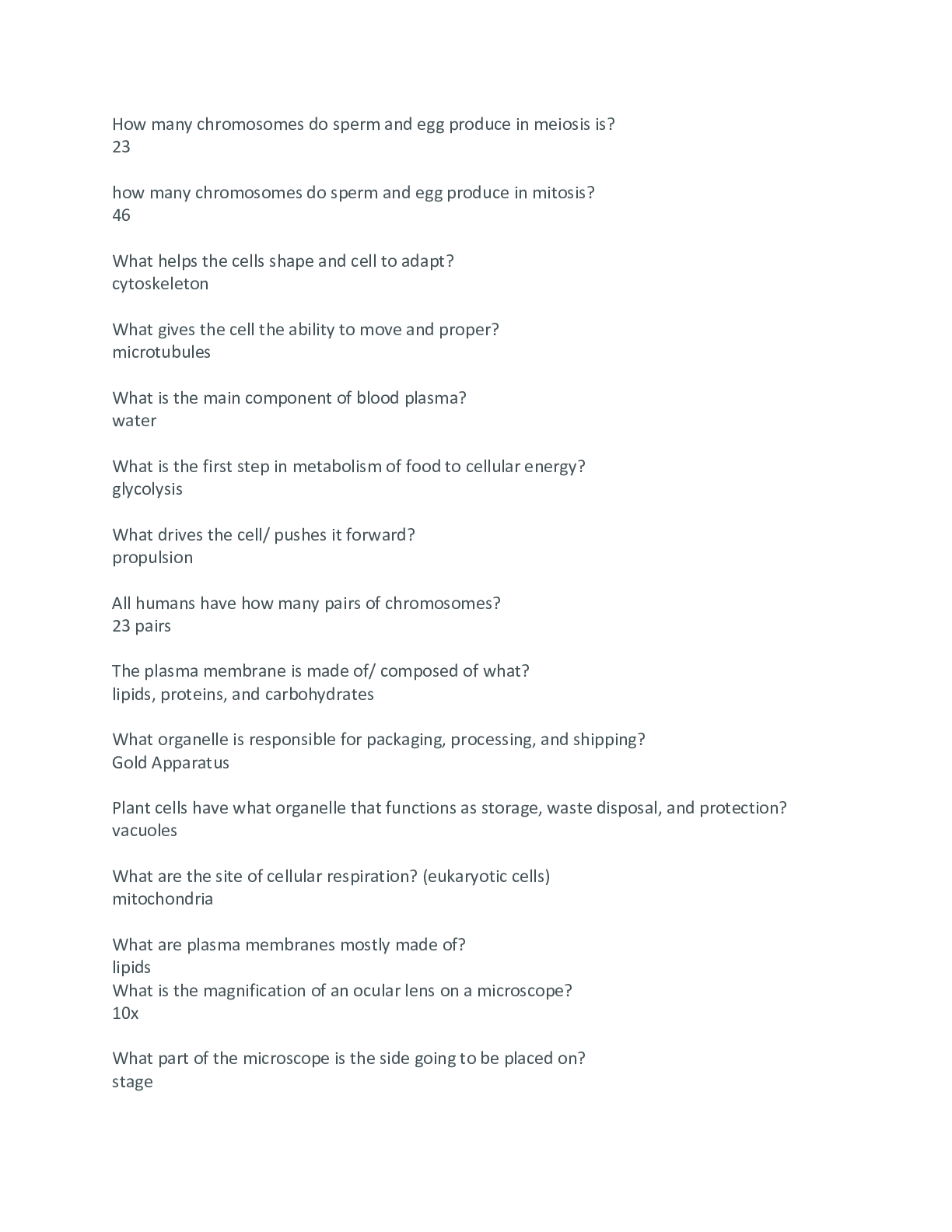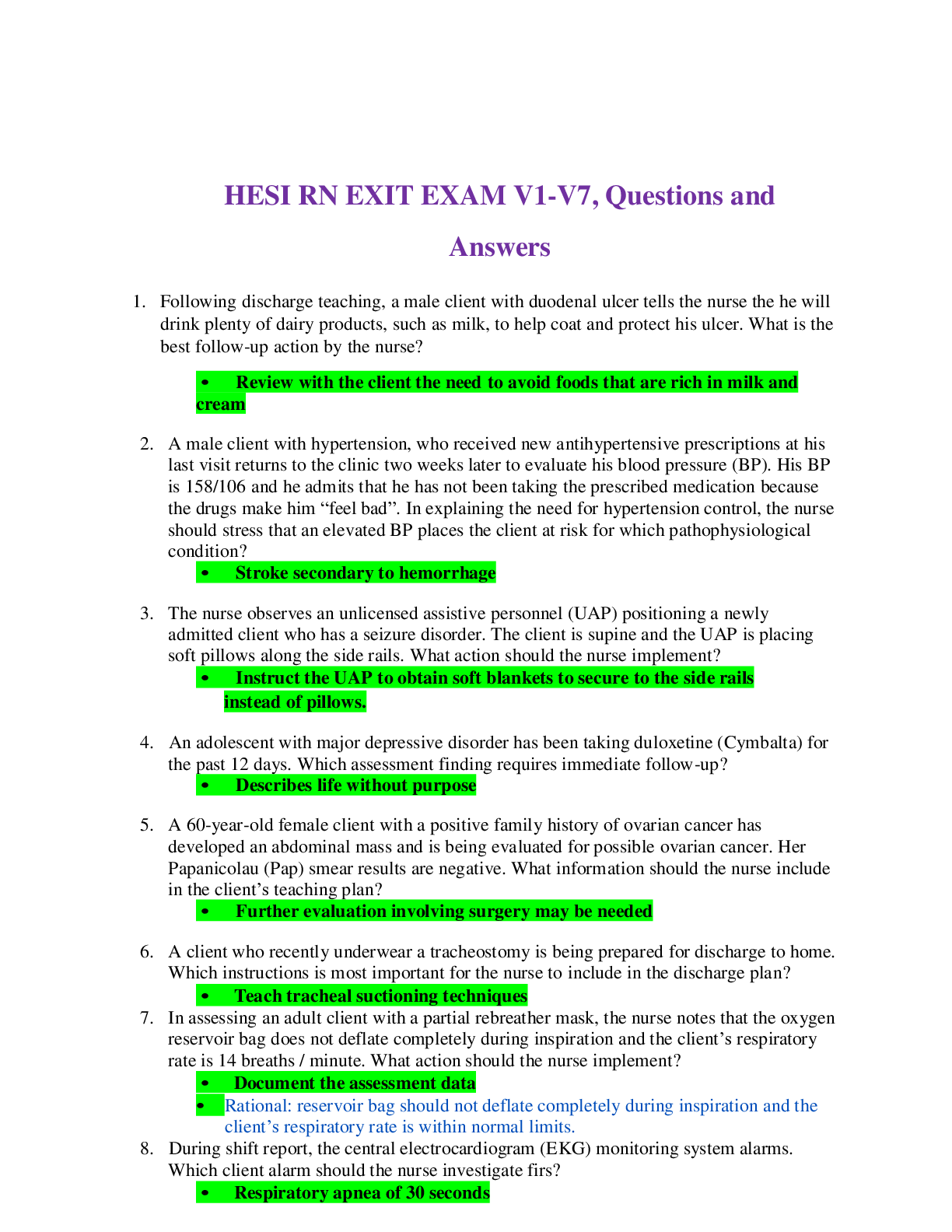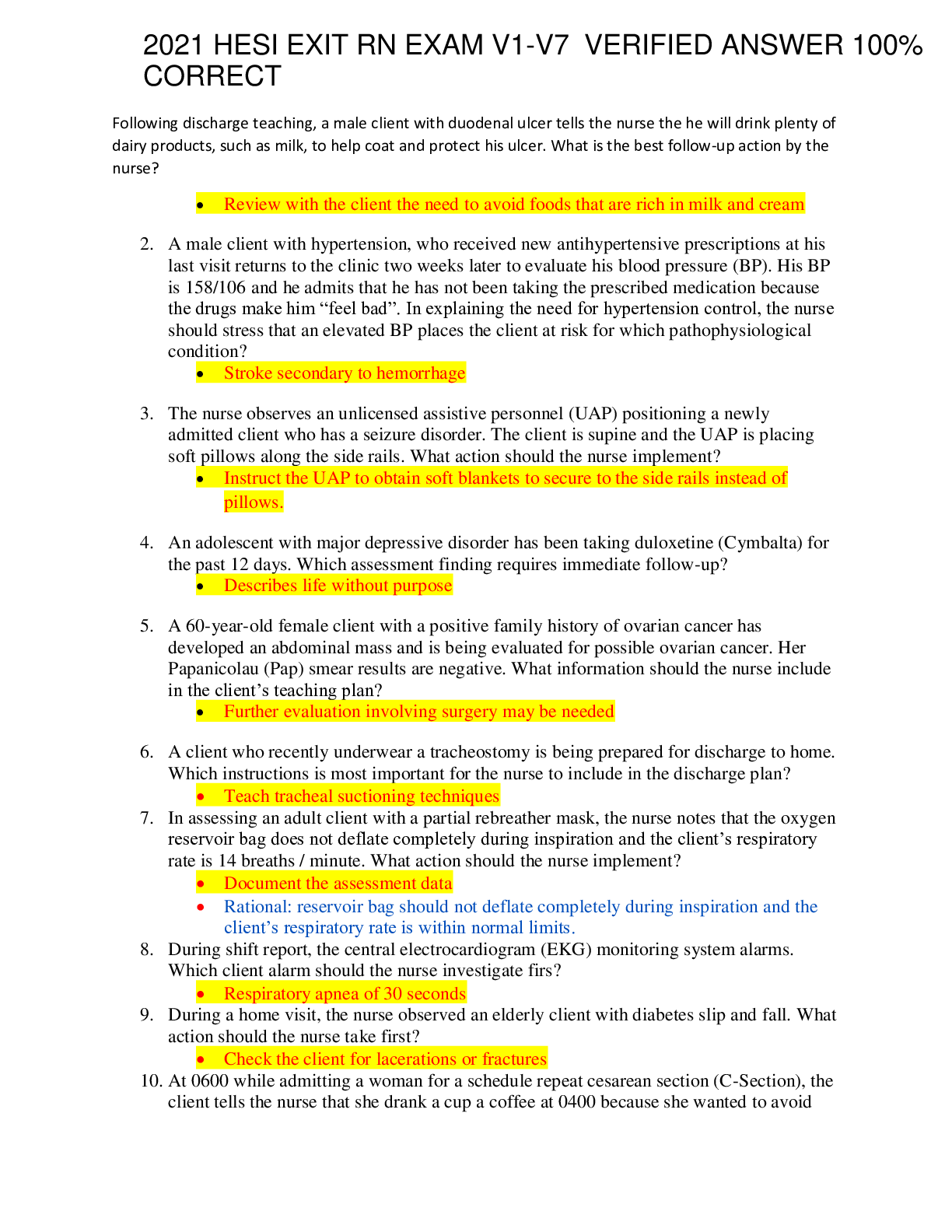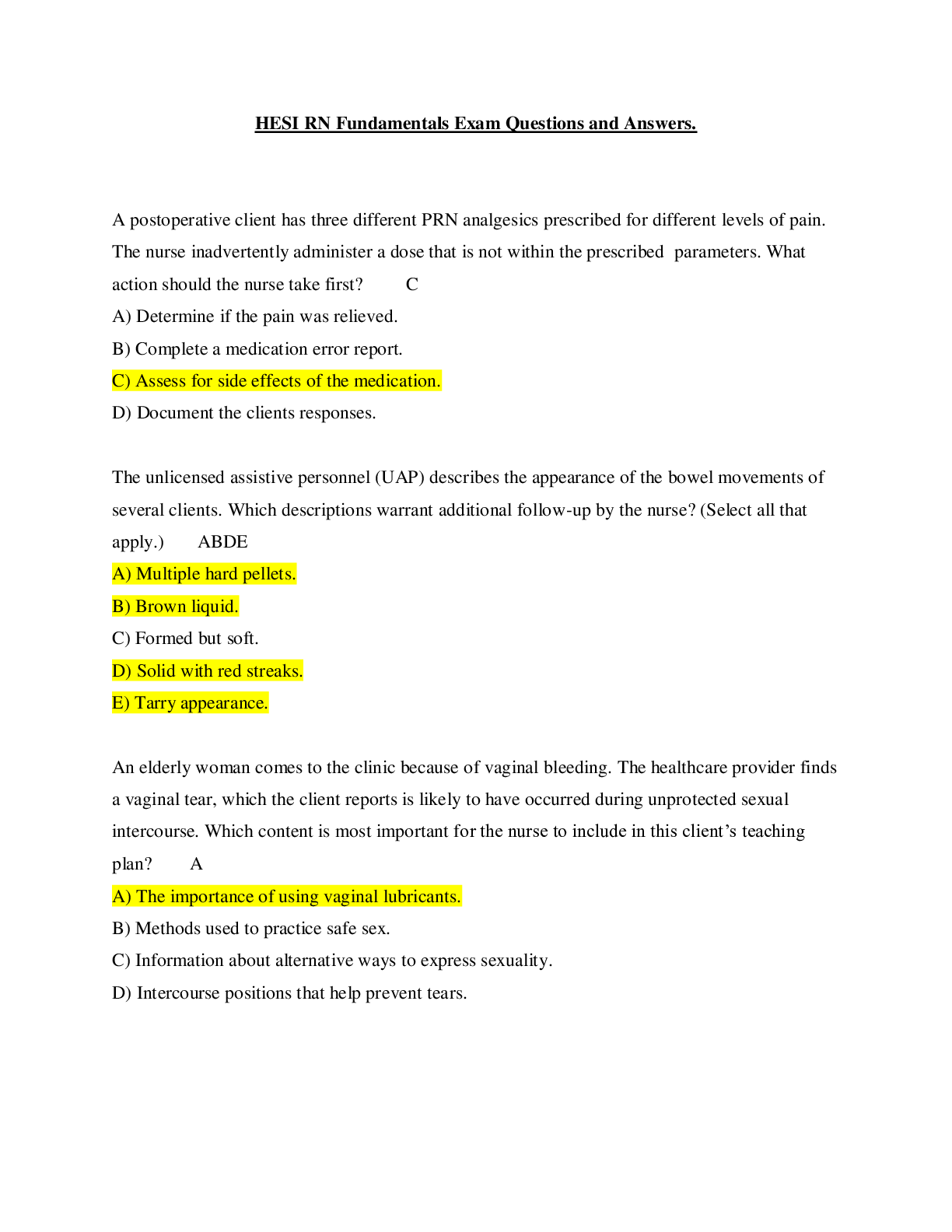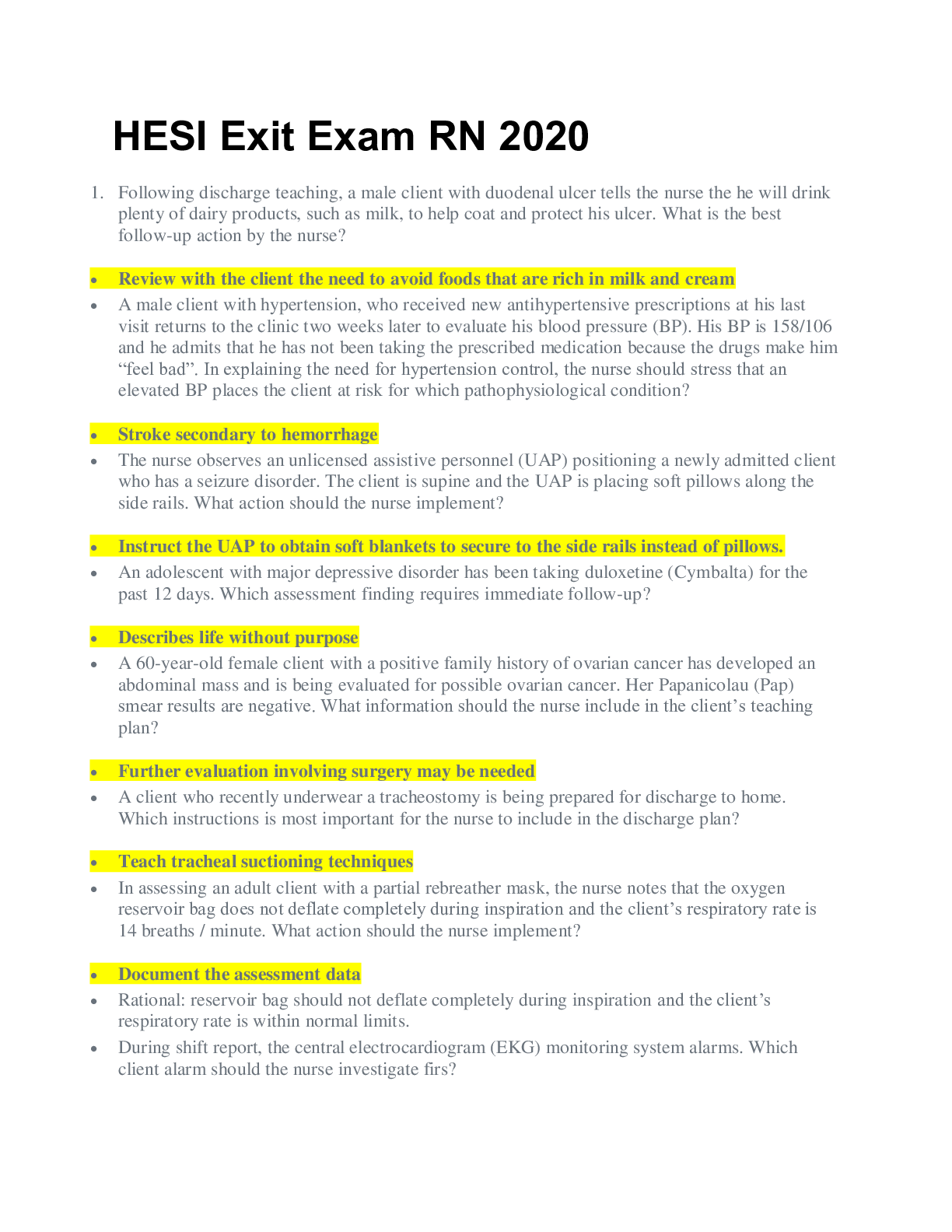MENTAL Health HESI 2
Document Content and Description Below
MENTAL Health HESI 2 1. A male employee who is assessed weekly in the employee clinic for blood pressure because of a history of hypertension tells the nurse that he is so upset with one of his co-wo... rkers that he would like to shoot him. What action should the nurse take first? a.) Determine if the client has a weapon available for use. b.) Inform the health care provider of the threat to harm a co-worker. c.) Notify security of the client’s intention to harm a co-worker. d.) Have the employee escorted to a mental health facility. 2. A male client who is participating in an anger management assignment asks if he can make a leather belt in occupational therapy. The client begins pounding the leather vigorously with a mallet to imprint designs on the belt. What defense mechanism is the client using? a.) Sublimation. b.) Suppression. c.) Regression. d.) Compensation. 3. A 20-year-old female client with schizophrenia is scheduled to receive risperidone (Risperdal) 2mg at bedtime. When the nurse attempts to administer the medication, the client states. “I am not going to take that medicine, and you can’t make me.” What action should the nurse take? a.) Administer the medication via a nasogastric tube. b.) Substitute an injectable form of the medication. c.) Encourage the client to take the medicine because it will help her sleep. d.) Document in the client’s record that the medication was refused. 4. An adult female client tells the nurse that though she is afraid her abusive boyfriend might one day kill her, she keeps hoping that he will change. What action should the nurse take first? a.) Discuss treatment options for abusive partners. b.) Explore client’s readiness to discuss the situation. c.) Determine the frequency and type of client’s abuse. d.) Report the finding to the police department. 5. A male client with bipolar disorder has not slept or eaten in four days. He paces and becomes increasingly agitated and loud while the nurse talks to his spouse. What intervention is the best for the nurse to implement at this time? a.) Move to a quiet area and provide peanut butter with crackers. b.) Walk with the client to the cafeteria and star as he eats lunch. c.) Request a full lunch tray from the dietary department. d.) Encourage the spouse to eat lunch with the client. 6. The nurse asks a female client with a borderline personality disorder, “How do you feel about your children not coming to visit this weekend?” The client looks out the window and replies, “I really don’t care.” Which response is best for the nurse to provide? a.) “I noticed you were looking out the window when discussing your feelings.” b.) “I think you’re lying and it bothers you that your children aren’t coming.” c.) “I think you should discuss your children not coming in the group meeting.” d.) “Why do you think your children didn’t want to come visit you this weekend?” 7. What is the most important goal of care for a client diagnosed with generalized anxiety disorder (GAD) who has been taking the benzodiazepine alprazolam (Xanax) long-term? The client will a.) Describe a decrease in anxiety using a 1 to 10 anxiety scale. b.) State the importance of not abruptly stopping the medication. c.) Not experience dizziness, lightheadedness, or sedation. d.) Attend scheduled individual and group therapy sessions. 8. The nurse is performing intake interviews at a psychiatric clinic. A female client with a known history of drug abuse reports that she has a heart attack four years ago. Use of which substance abuse places the client at highest risk for myocardial infarction. a.) Benzodiazepine b.) Marijuana c.) Methamphetamine d.) Alcohol 9. During a one-to-one session with the nurse, a female client who has been admitted for chronic depression and attempted suicide discloses her experience of sexual promiscuity and prostitution. When the nurse asks the client if she was ever sexually abused as a child, the client says, “I don’t remember, but my mother ran my father off when I was five.” The nurse should recognize that the client may be using which defense mechanism? a.) Denial b.) Projection c.) Regression d.) Repression 10. A client who refuses antipsychotic medications disrupts group activities, talks with nonsensical words and wanders into client’s room. The nurse decides that the client needs constant observation based on which of these assessment findings? a.) Disrupts group activities. b.) Wanders into the client’s rooms. c.) Talks with nonsensical words. d.) Refuses antipsychotic medications. ...........CONTINUED [Show More]
Last updated: 1 year ago
Preview 1 out of 10 pages
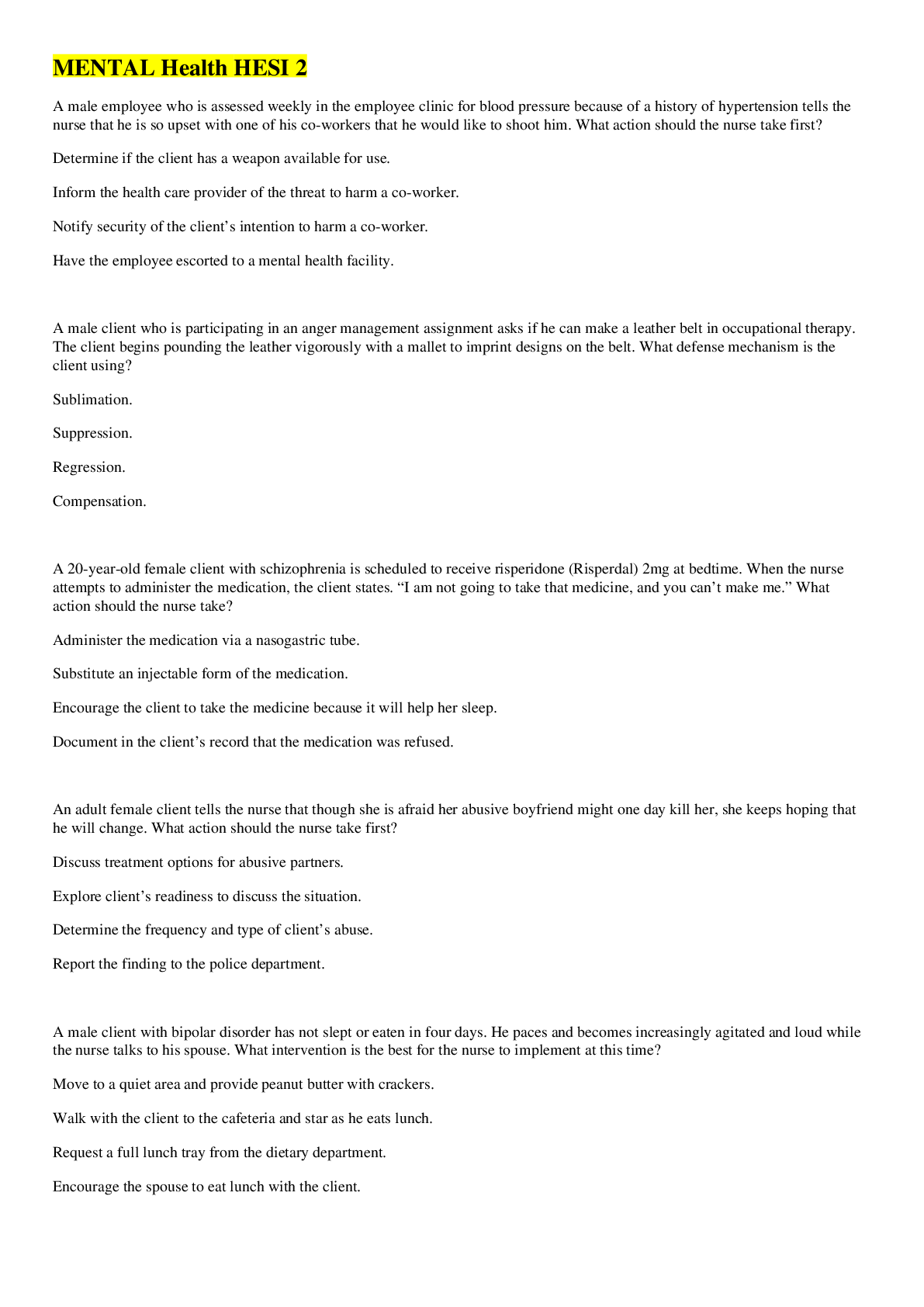
Also available in bundle (1)
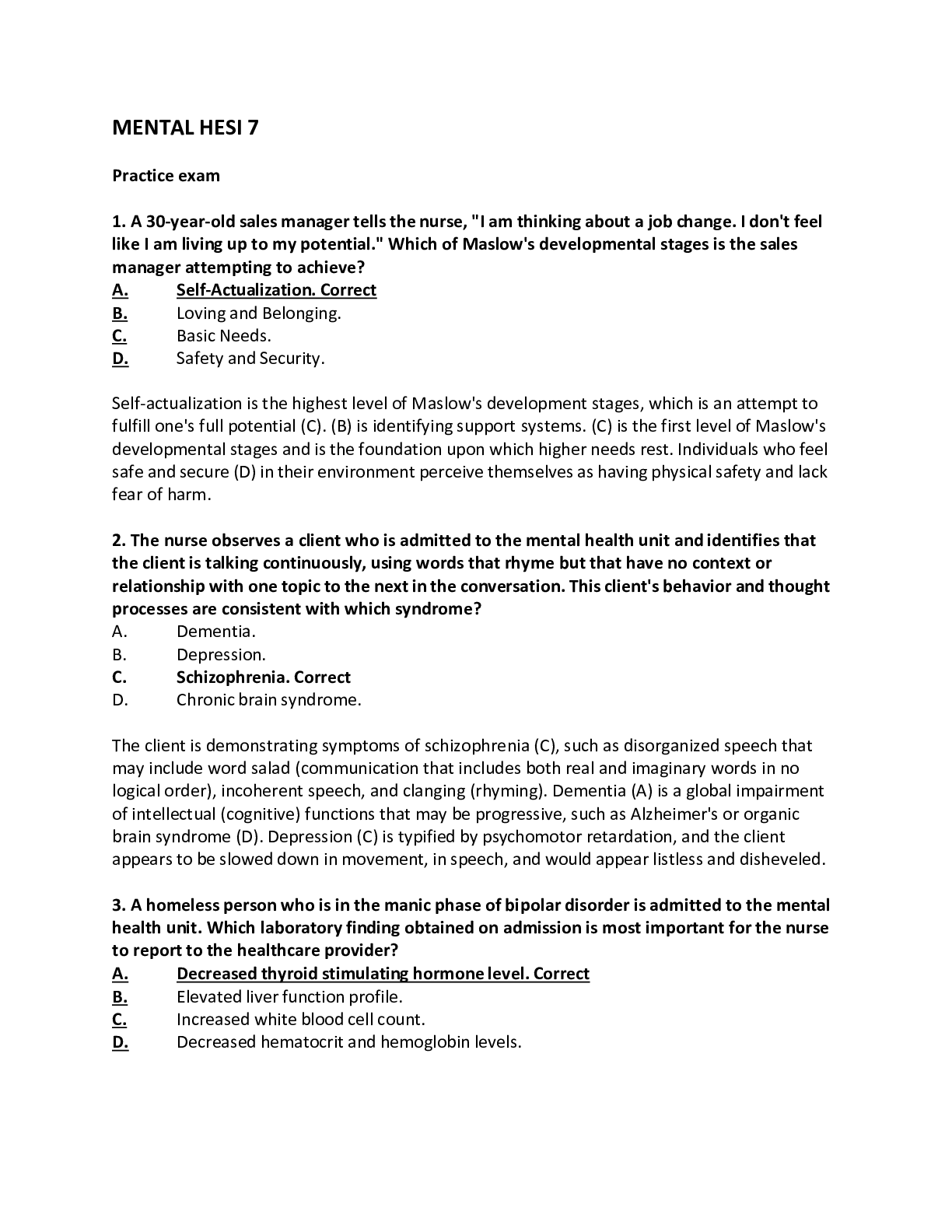
Mental Health HESI 1-7
Mental Health HESI 1-7
By YourTutor 3 years ago
$65.5
7
Reviews( 0 )
Document information
Connected school, study & course
About the document
Uploaded On
Jan 27, 2021
Number of pages
10
Written in
Additional information
This document has been written for:
Uploaded
Jan 27, 2021
Downloads
0
Views
72

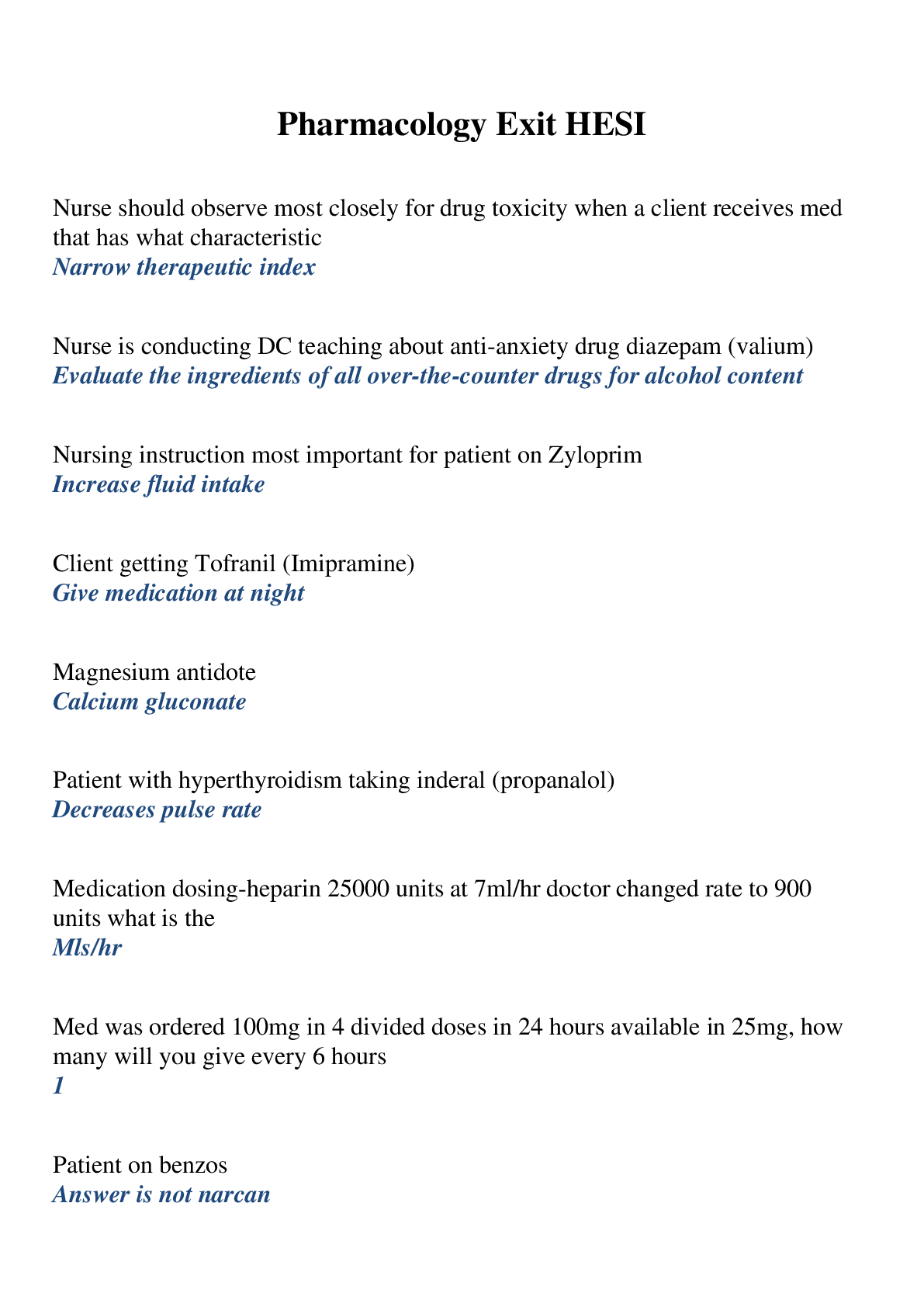
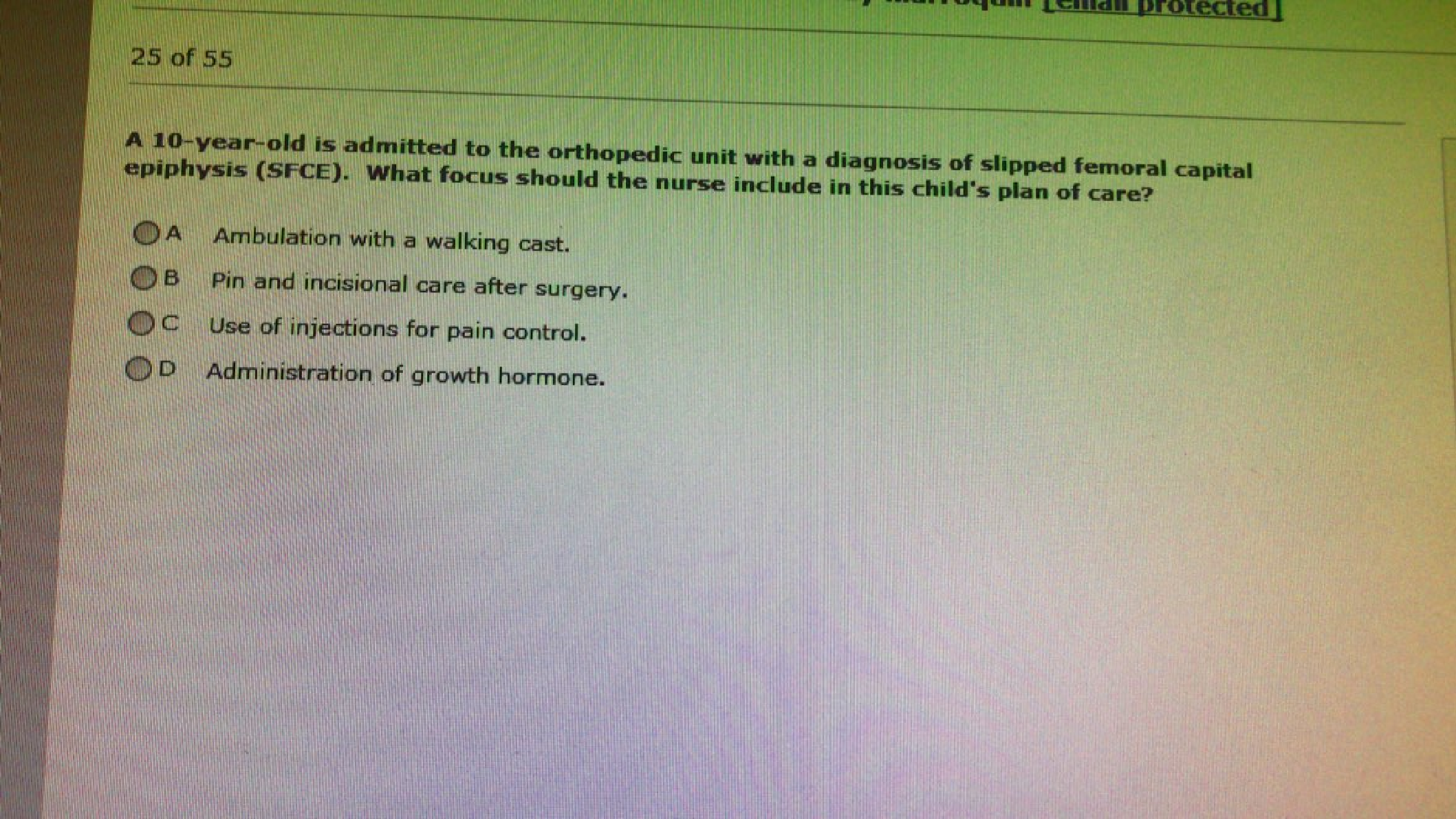
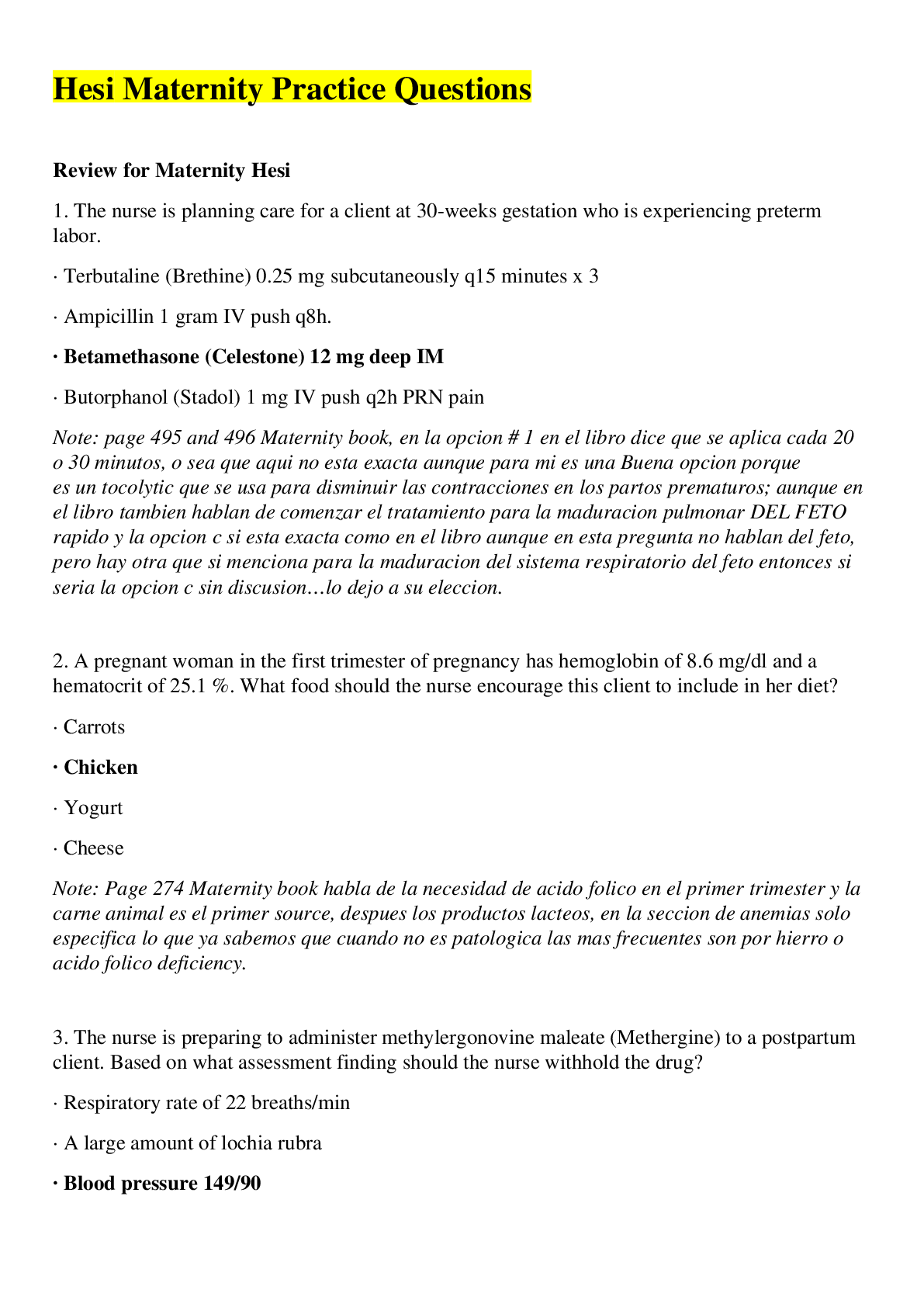
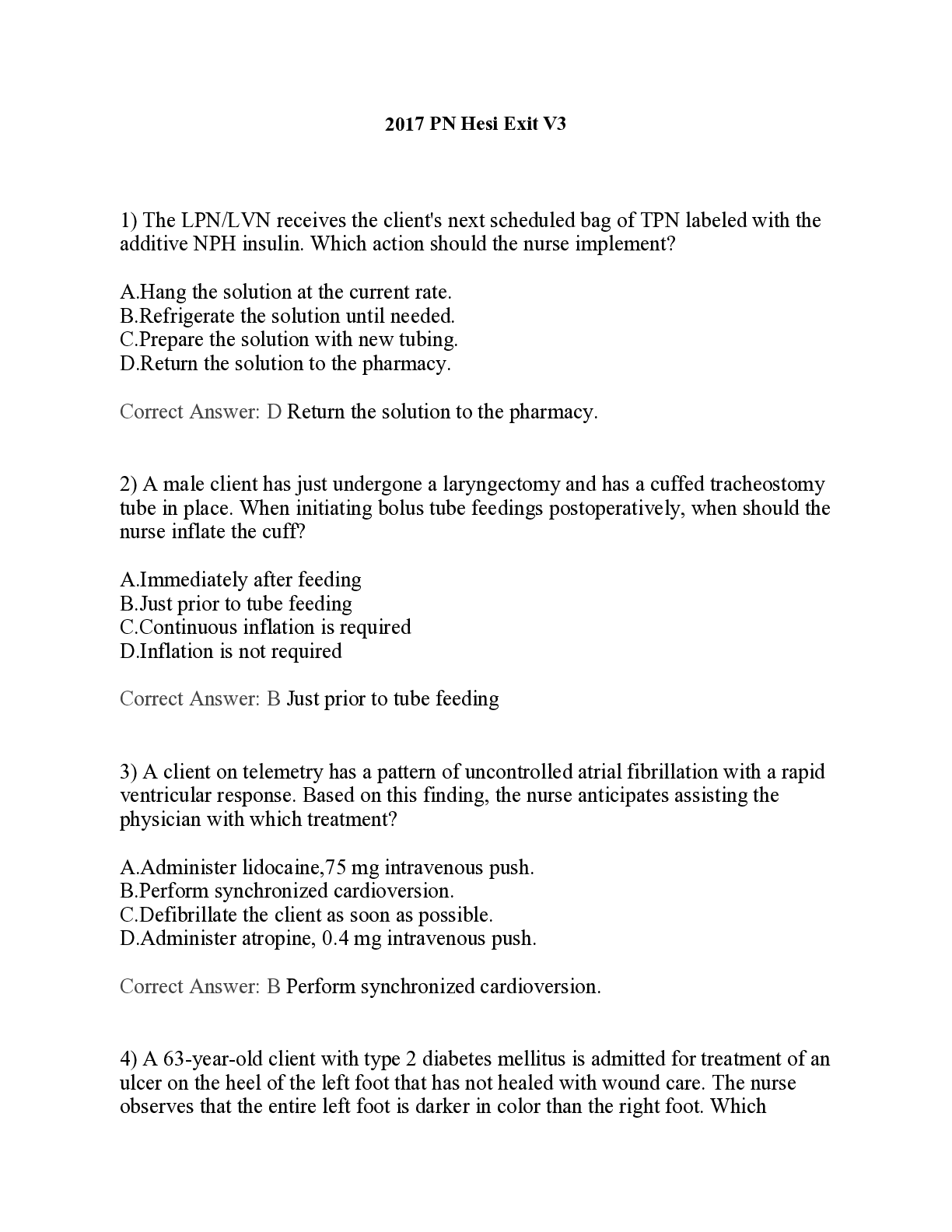
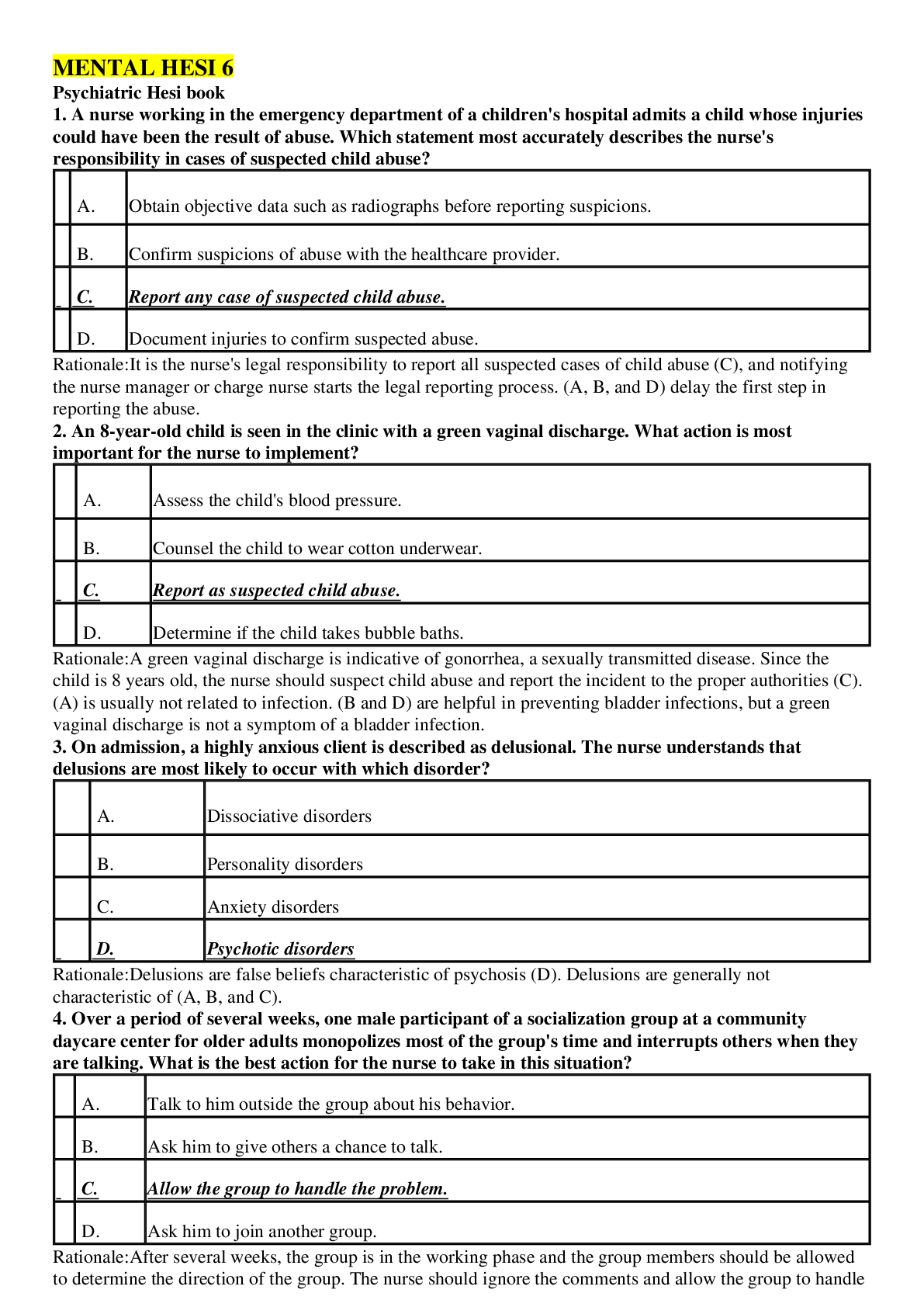
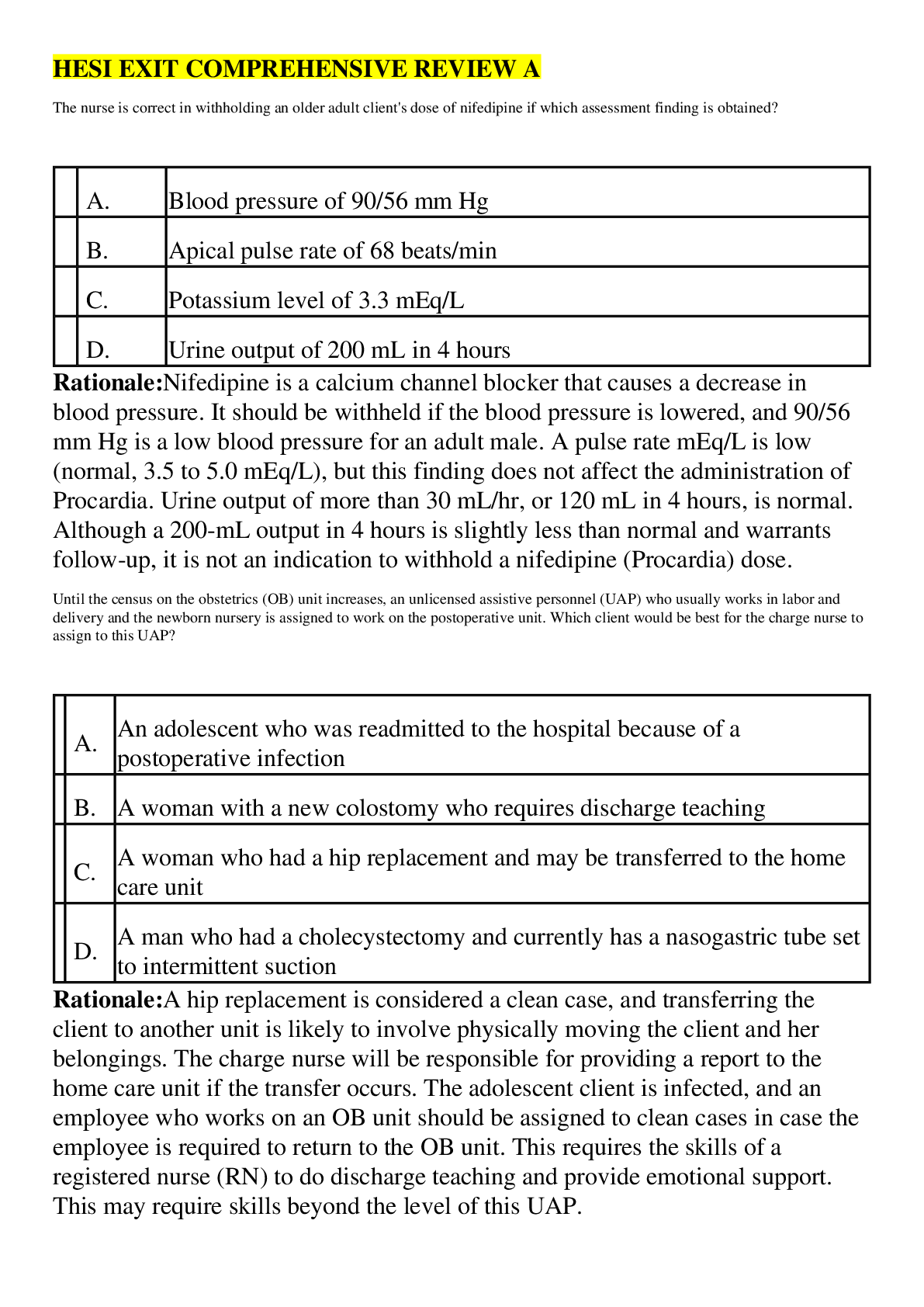
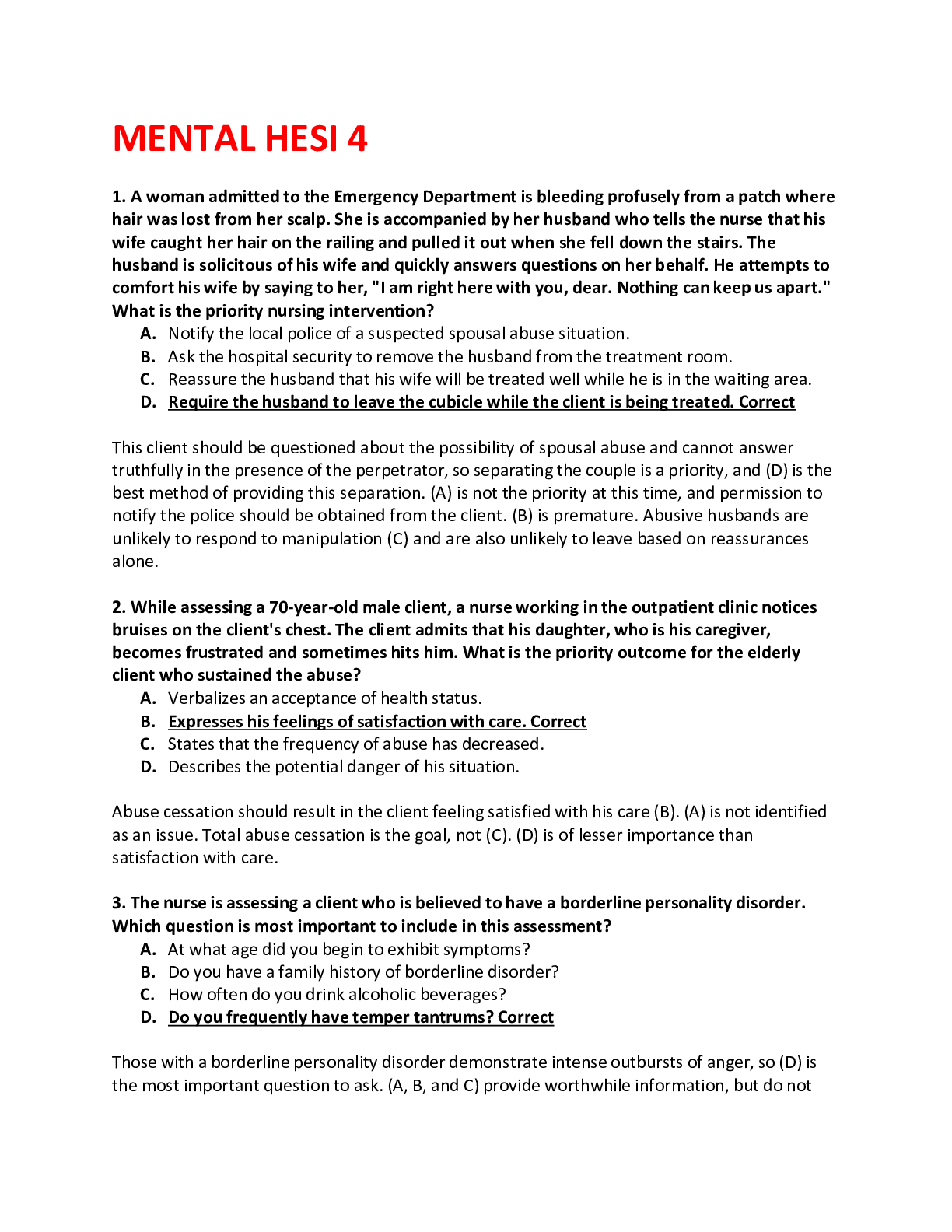
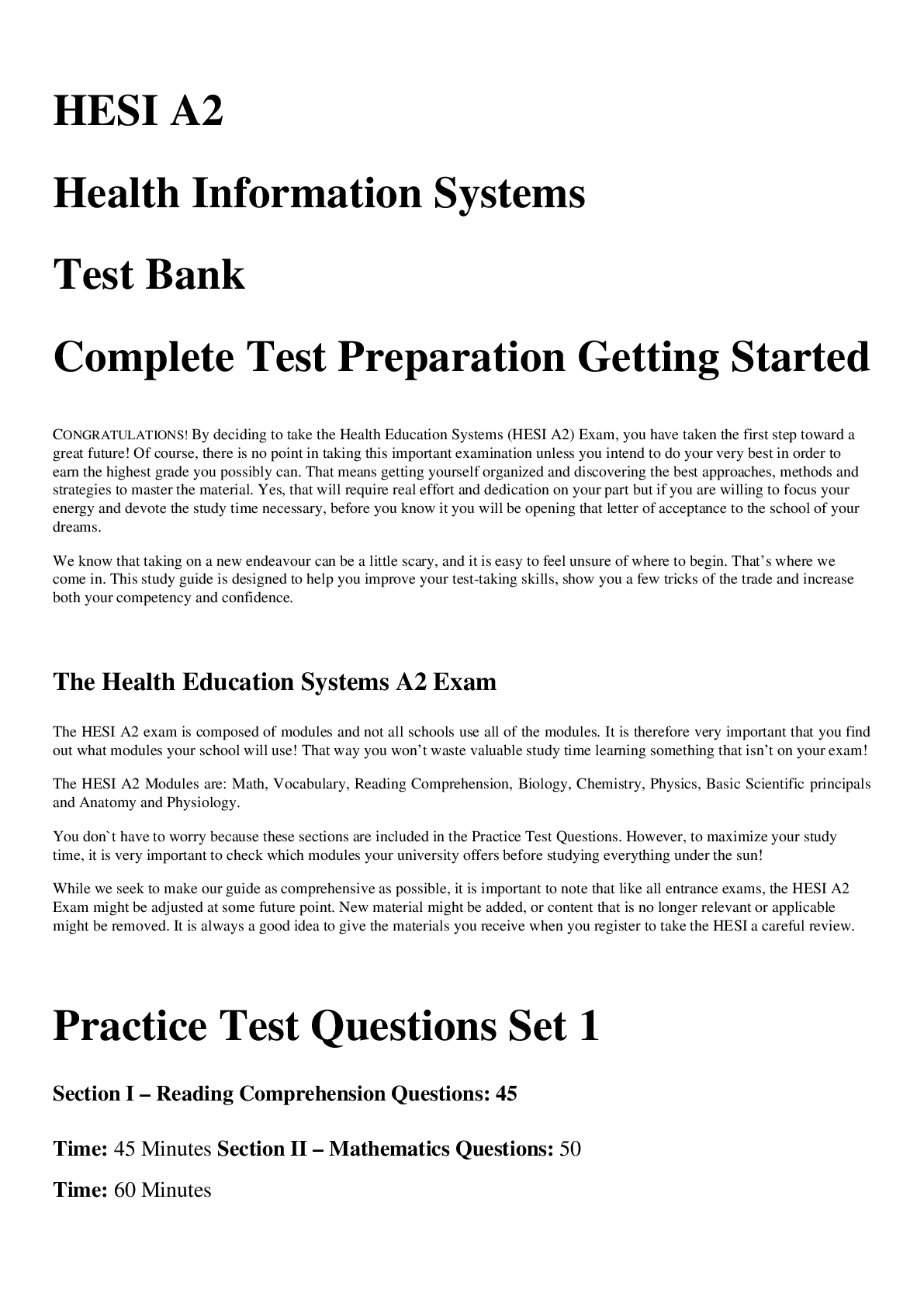
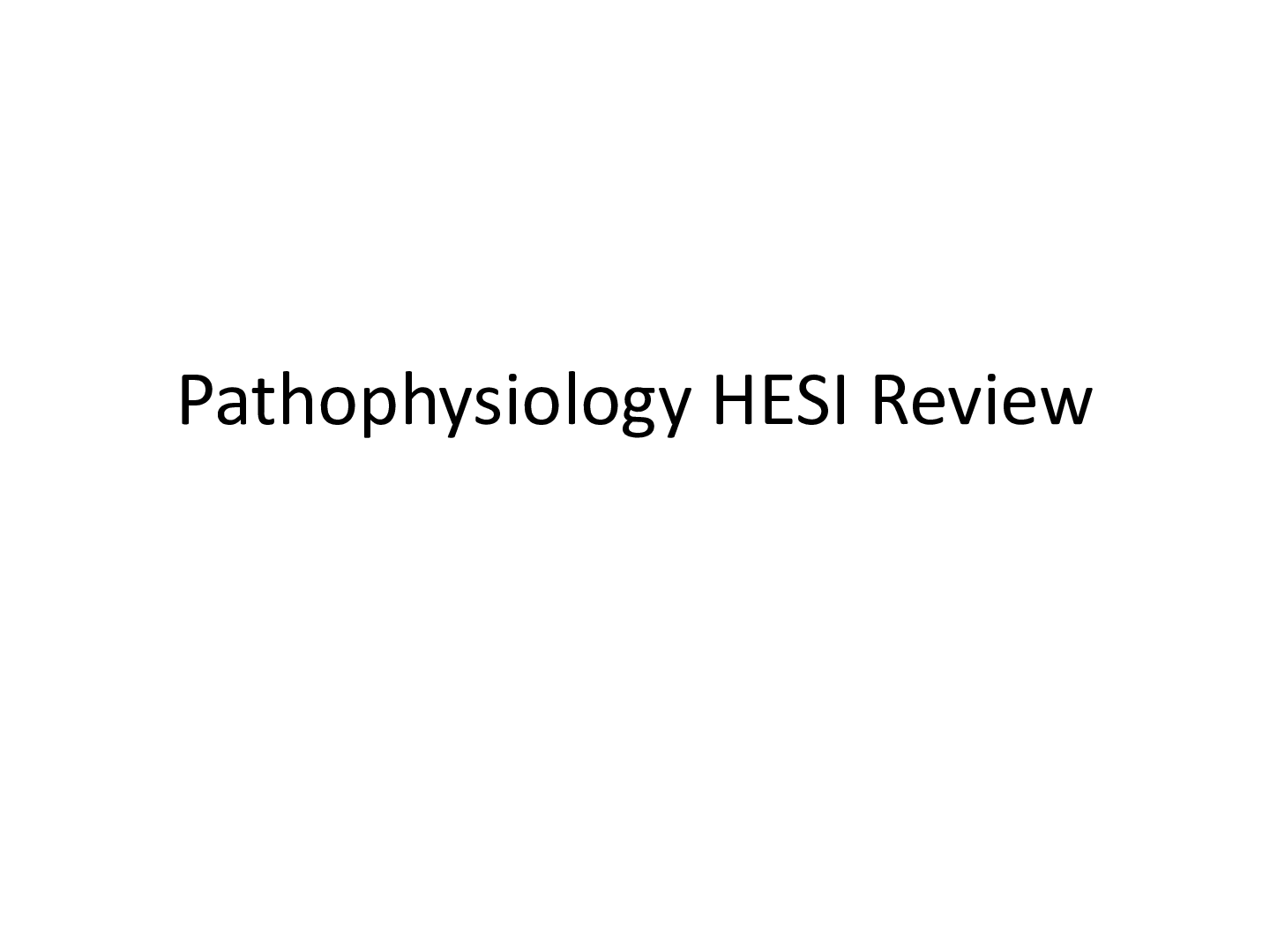
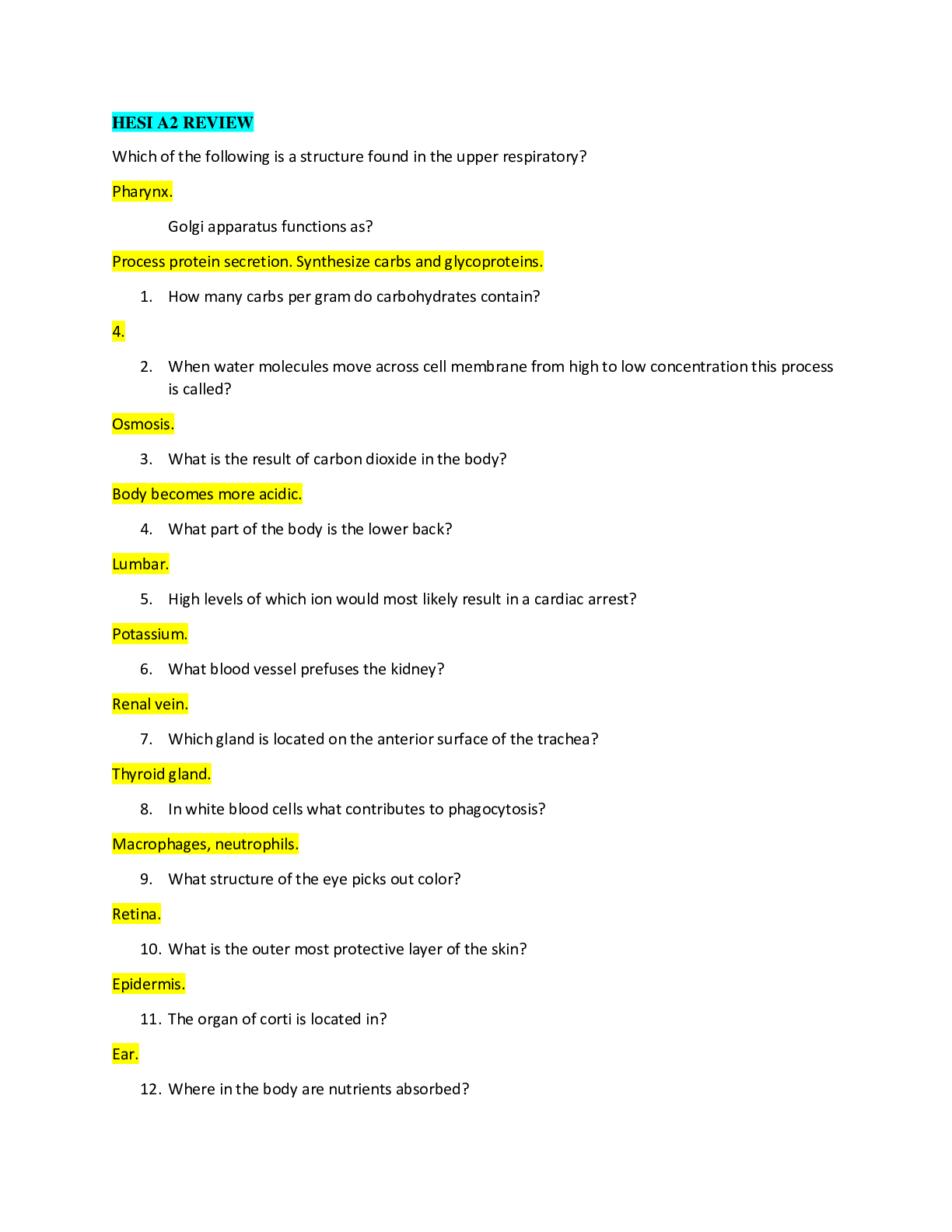
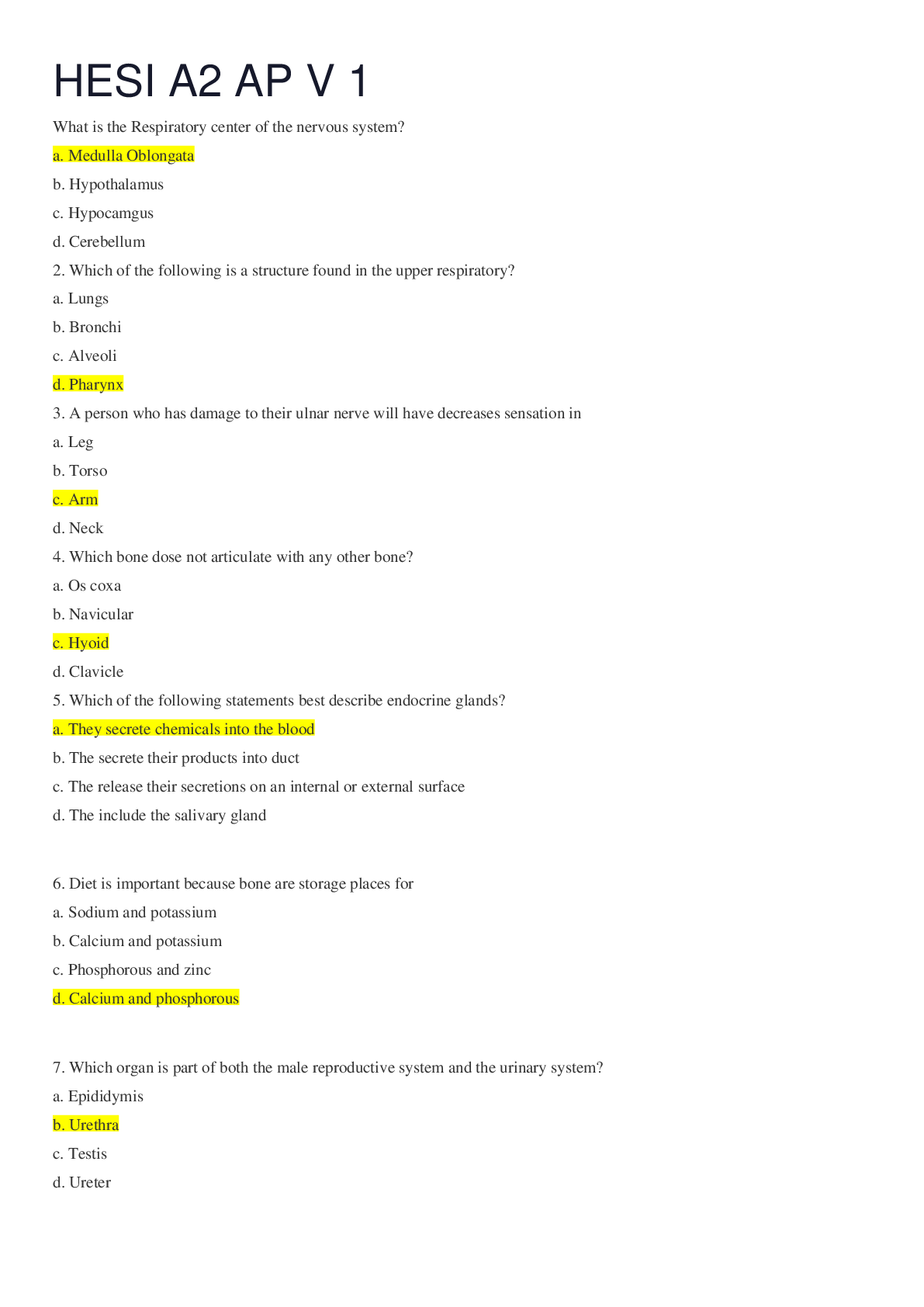
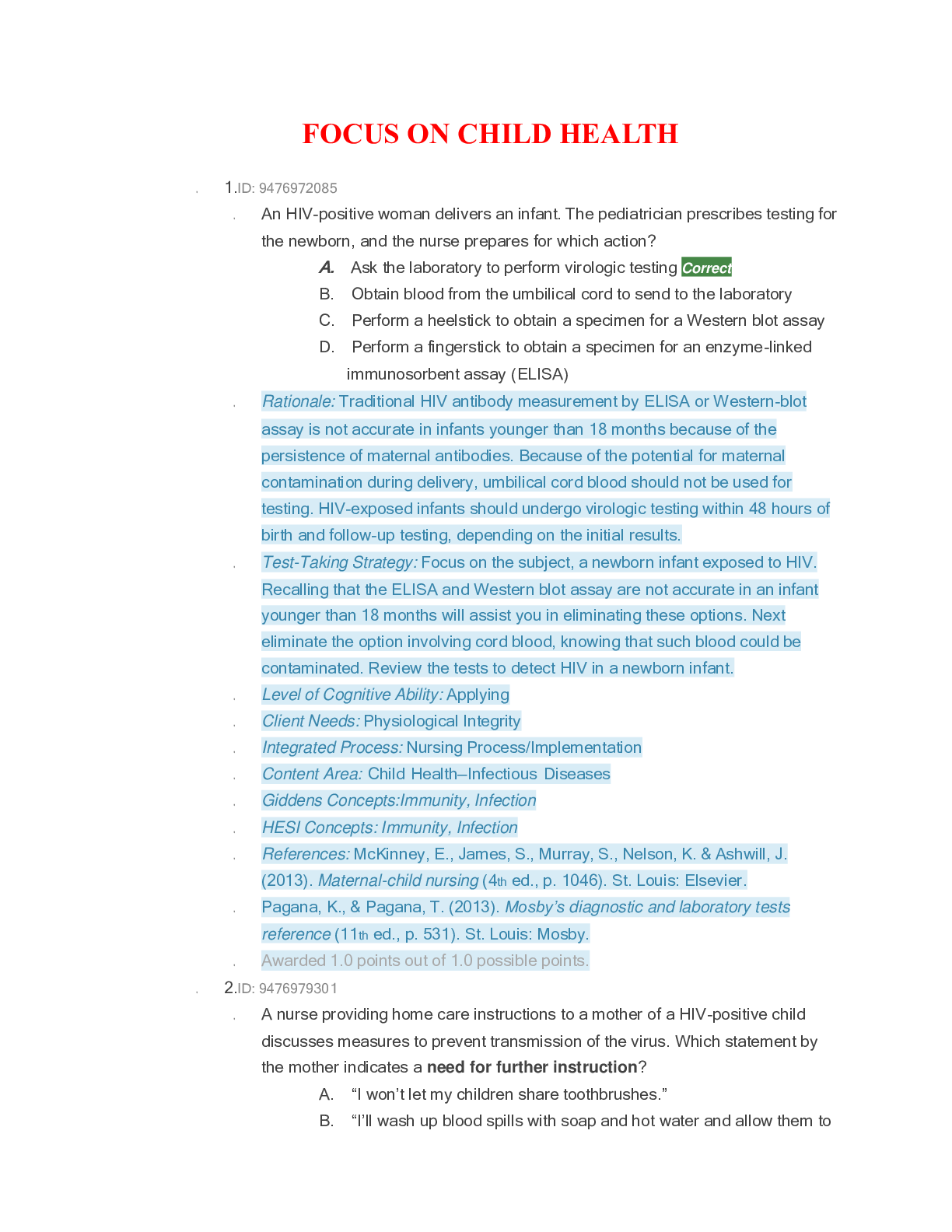
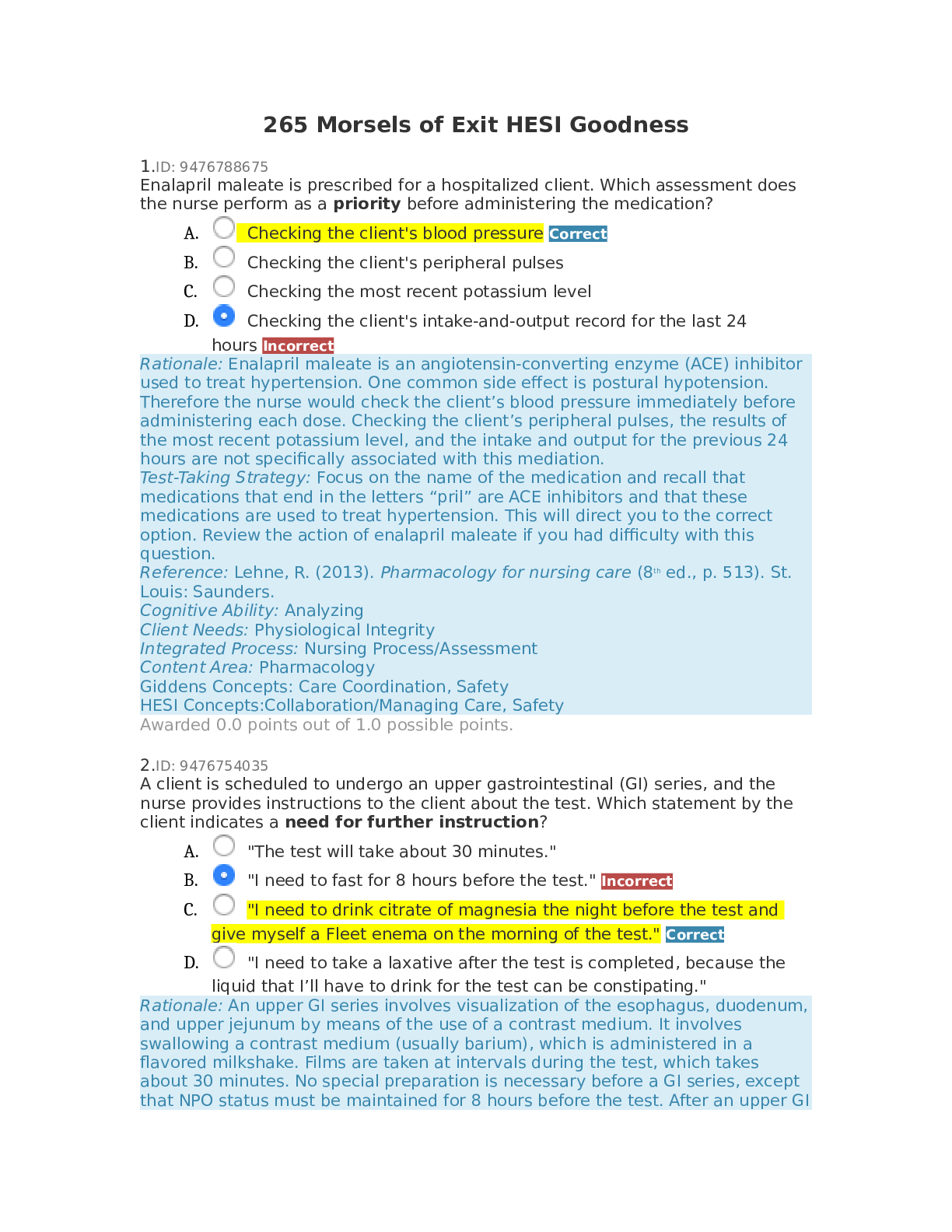
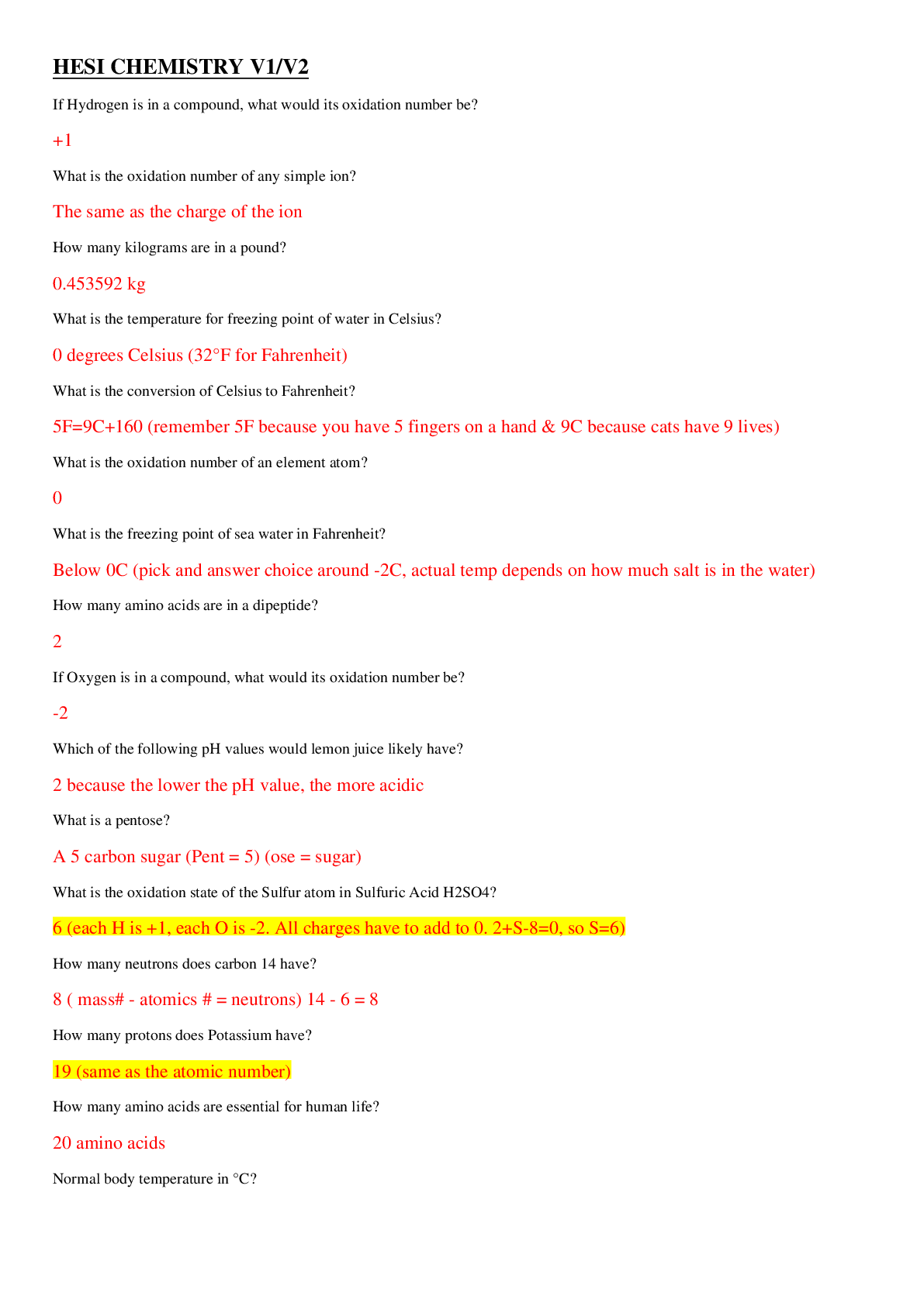
 Practice Test 2022.png)
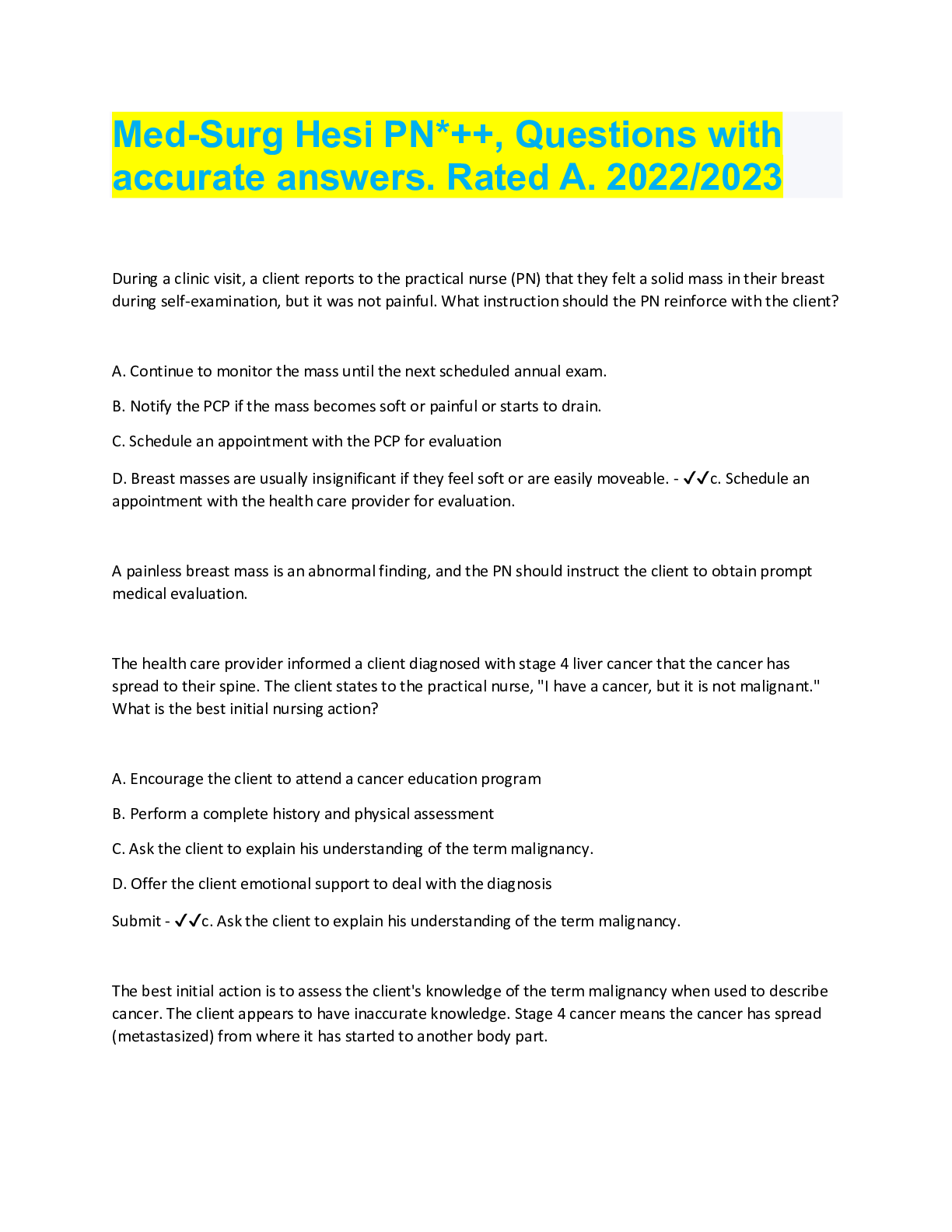

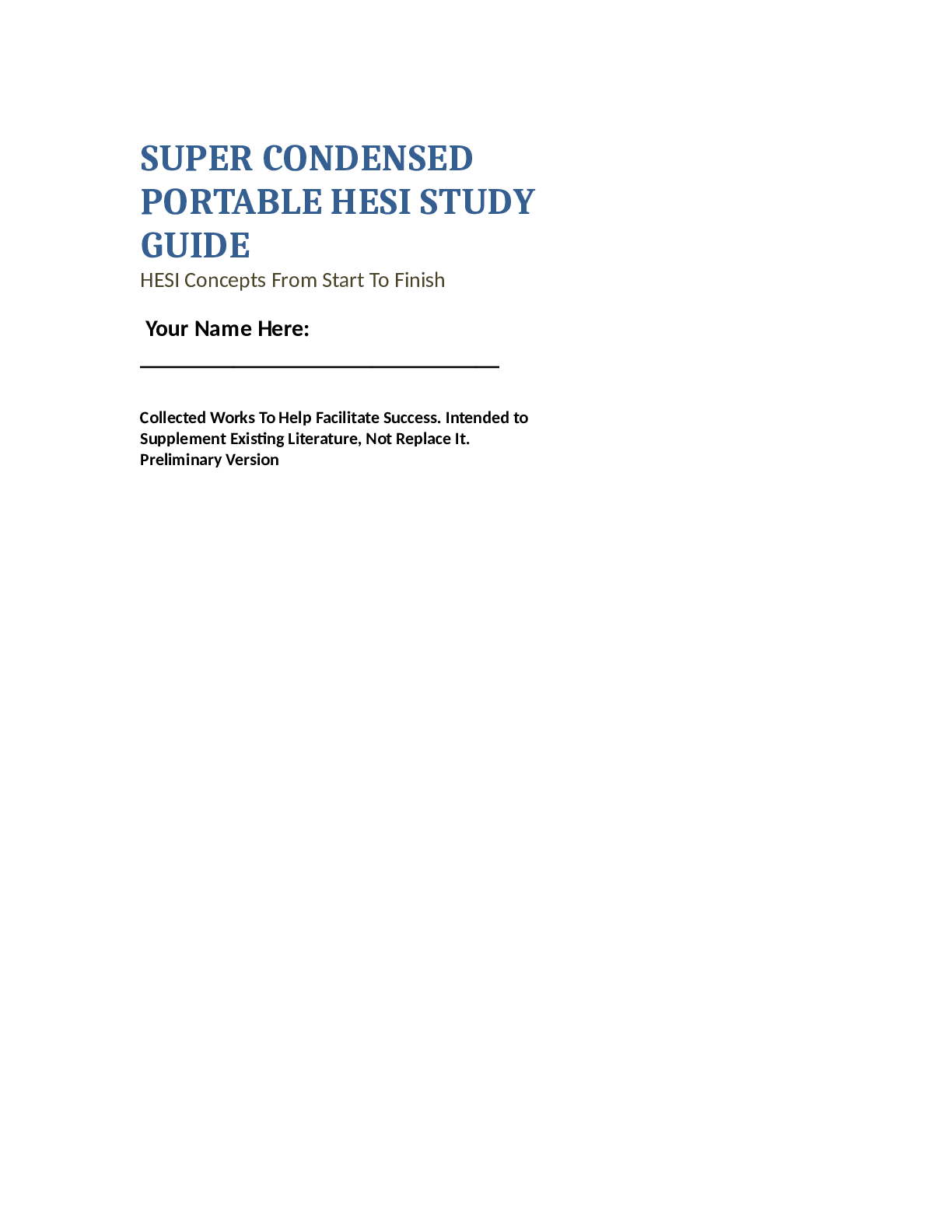
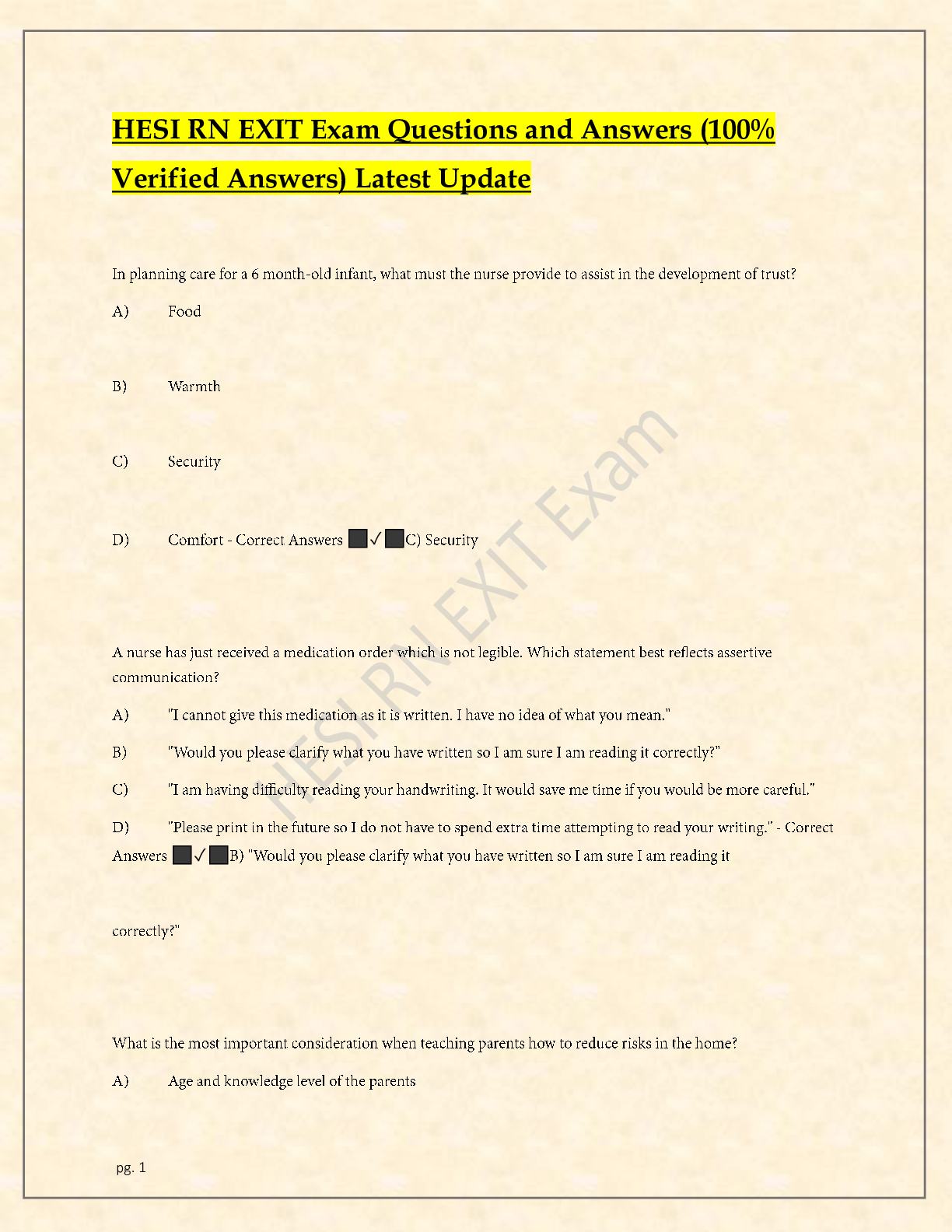
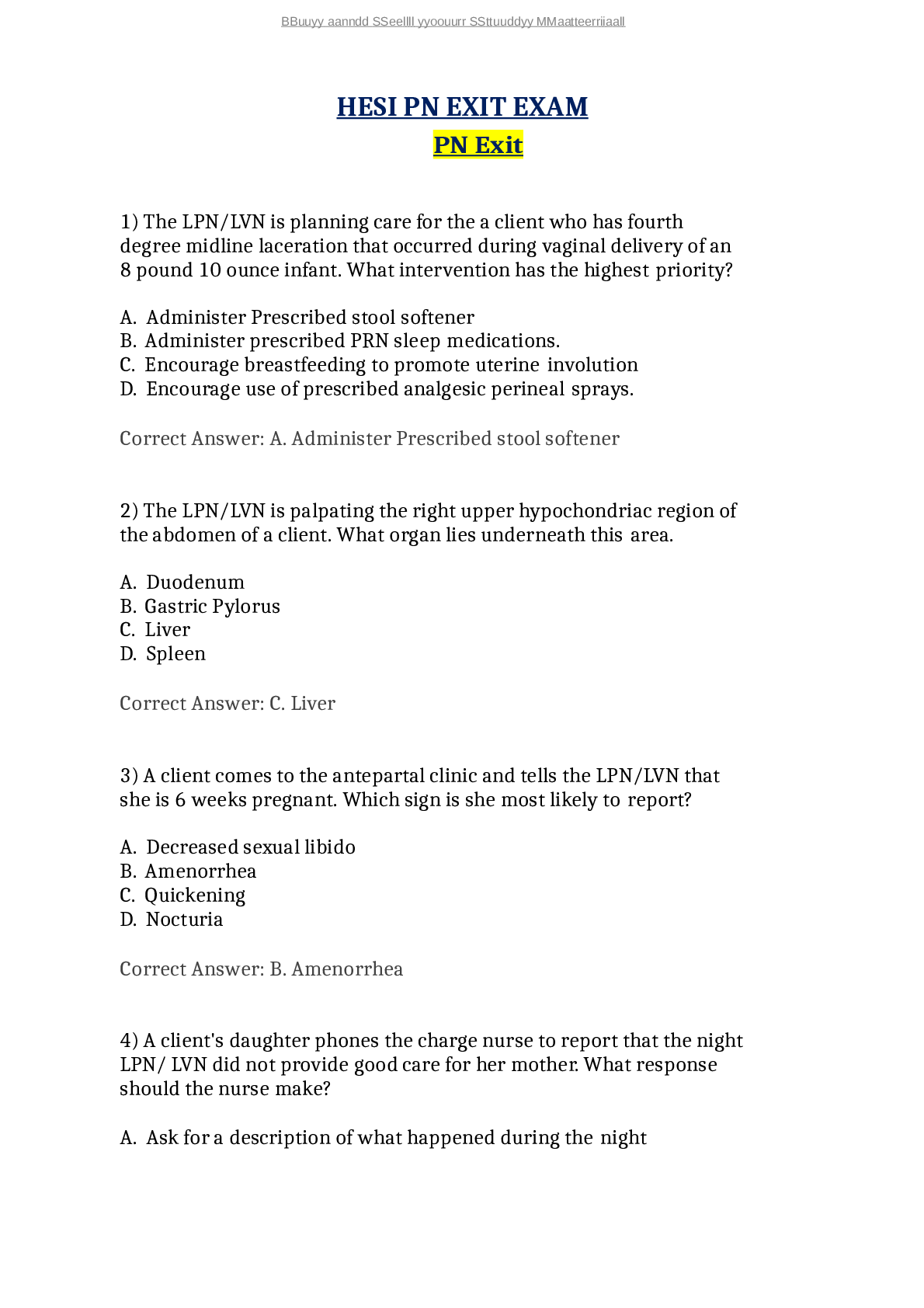
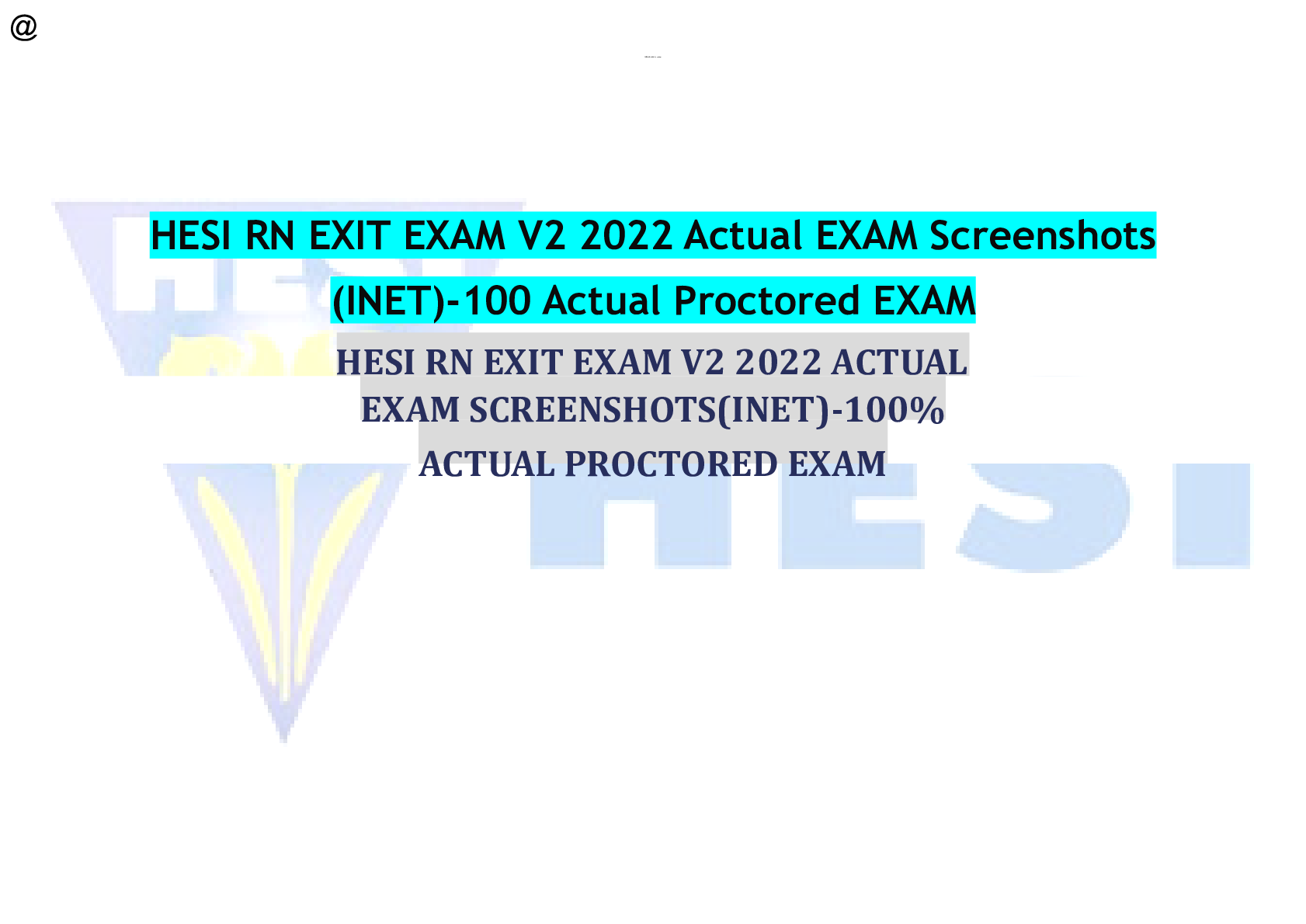
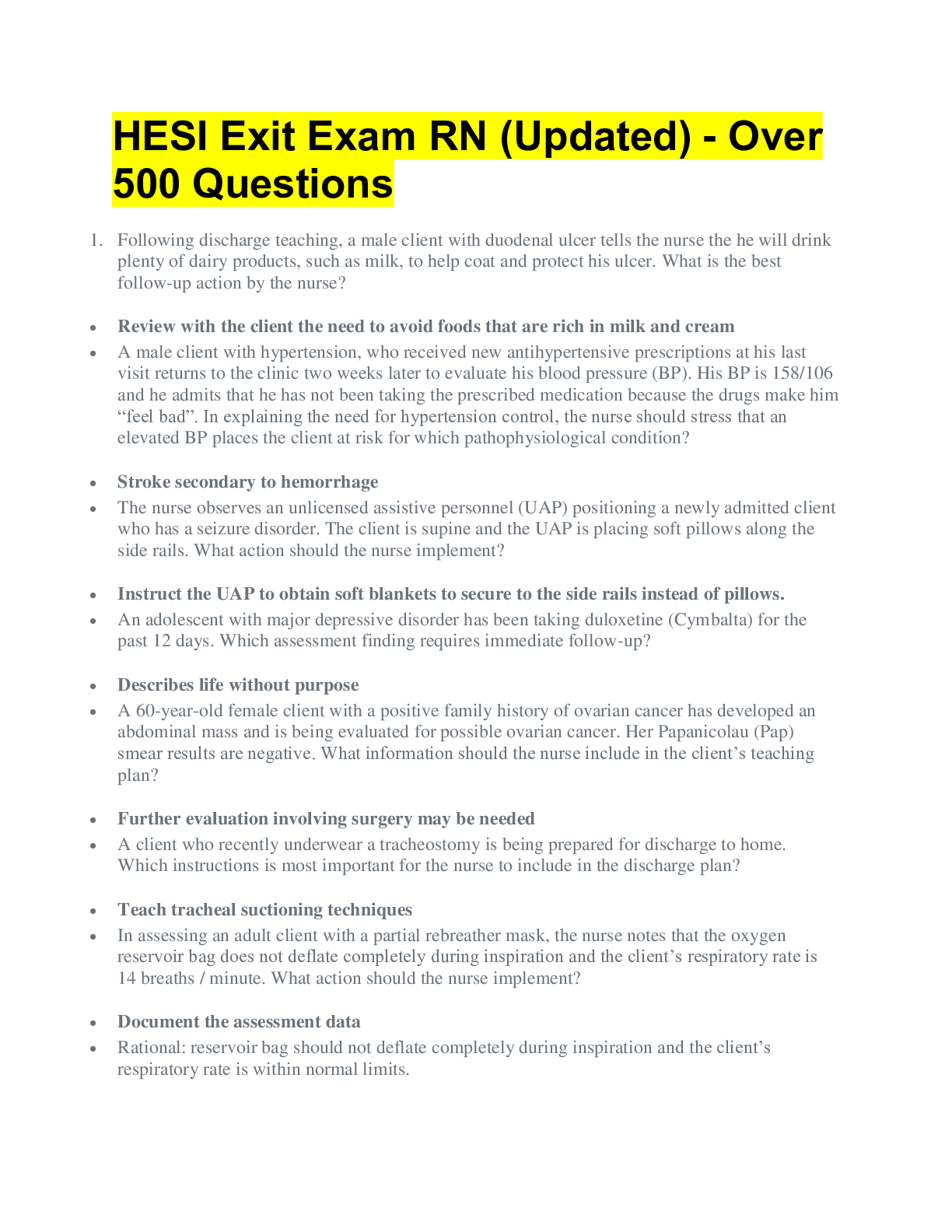
 (1).png)
